
- October 11, 2023
- Education Advice

Ph.D. vs. Doctorate: What are the Differences?
UOTP Marketing

For those who have a deep-seated attitude, pursuing a doctoral degree can be a tough yet beneficial journey. Currently enrolled in a doctorate program means that a person has already scooched over college admissions, went through high stake tests and exams, and finished all those research papers and long hours spent in university libraries hitting the books. While studying for a doctorate entails asserting oneself to an extensive amount of quality time and money , its significance and purpose usually pave the way to a lucrative end.
After having finished the Master’s Degree , students begin to think about their next step in their academic career. Then, paradoxically, while navigating through academia, they find themselves baffled by the immense terms and terminologies used to label specific degrees. Because the terms “Doctorate” and “Ph.D.” are somehow interlocked and overlap, and because “PhD” is sometimes used inconsistently, it can lead to considerable confusion. Ph.D. vs. Doctorate? You might wonder what their difference is, and why they are important. E xplaining what each of these terms stands for, the difference between them, and why they are valuable, can help you steer yourself down the right path from the outset.
Doctorate Degree vs. Ph.D.

At first glance, it is pretty easy to confuse these two terms. But it is important for everyone to be able to make a distinction between the two. In this article, we will discuss the difference between Ph.D. and Doctorate in detail in order to get rid of any confusion you may have. In the academic world, the terms Doctorate and Ph.D. are currently used interchangeably. Both of them are the top cap of the ladder. However, a doctorate is mostly used as an umbrella term covering many fields ranging from professional degrees, humanities, and scientific disciplines.
A Ph.D. or Doctor of Philosophy, on the other hand, is a subcategory of a doctoral degree, it is much more distinct and clear-cut and is usually narrower in nature encompassing only humanities and scientific fields. In plain English, when someone says they are enrolling on a doctoral degree, it means they are doing a Ph.D. in a specific field. So, technically, in common parlance, there is no difference between the two terms.
But at the other end of the spectrum, one should be careful not to confuse a professional doctoral degree with a Ph.D. The former is more practical and is designed to prepare students to apply existing knowledge to find solutions to real-life problems and has a direct application to a particular profession.
A Ph.D. is theoretical by nature and is more academic and research-focused. it is often fixed on disseminating knowledge by conducting authentic research which means reviewing and identifying gaps in current literature and evaluating the relevance of existing and emerging theories within a particular field.
What Is a Ph.D. Degree and Why Should You Go for It?
Students who acquire a Ph.D. are justly proud — they wear it as a badge of identity in the academic elite. Traditionally, a Ph.D. was associated with teaching, which from Latin licentia docendi meant “license to teach”. However, the concept of Ph.D. has been on shifting sands nowadays and has become a more general term that isn’t necessarily confined to teaching only.
The Value of a PhD

Obtaining a Ph.D. helps you capitalize on the emerging academic opportunities making you more easily identifiable to employers or businesses seeking to fill professional, higher-level job positions. Many of these career options, conversely, are not available to those who do not belong to the Ph.D. club. While pursuing a Ph.D. requires devoting a tremendous effort and time and making significant personal sacrifices pushing the boundaries of knowledge, it’s all in service of the area of study you’re most passionate and zealous about. Ultimately, once you’ve attained your Ph.D., you will have achieved the pinnacle of education— something not too many people have or are able to accomplish.
FREE RESOURCE

A Guide to Choosing and Applying to Ph.D. Programs
Learn everything you need to know about selecting and applying to Ph.D. programs. Learn tips and tricks for a successful application and find your ideal program today!
What Is a Doctorate Degree?
A doctoral or doctorate degree is usually the most advanced degree one can earn in an academic discipline. Many pursue a doctorate degree to increase their professional credibility, be acknowledged as an expert in a specific field, and improve their resume.
A doctorate degree is a graduate-level credential that is usually earned after multiple years of graduate school. Earning a doctoral degree requires a significant level of research and work. In order to get this degree, one has to research a subject thoroughly, conduct new research and analysis, and provide a solution or interpretation into the field. But what types of doctoral degrees are available?
Types of Doctorate Degrees
There are two categories of doctorate degrees: an academic degree and a professional doctorate degree. An academic degree focuses on research, data analysis, and the evaluation of theory. A professional doctorate degree, on the other hand, is considered a terminal degree, which means that one has achieved the most advanced degree in the field. This degree is specifically designed for working professionals who want to grow in their careers.
Professional Doctorate Degrees
A professional doctorate is designed for working professionals who have experience in the field and want to increase their knowledge, improve their credibility, and advance their careers. This degree focuses on applying research to practical issues, coming up with interpretation and solutions, as well as designing effective professional practices within a particular field.
Professional doctoral degrees include:
Doctor of Business Administration (DBA)
The DBA degree is ideal for students who already have a general business background and are interested in delving deeper into the practical and theoretical aspects that underpin business education. More to the point, in DBA you will develop the ability to solve real-life problems, discover the relevant expertise to innovate and uphold complex business issues and so much more. Upon completion, DBA students will possess enhanced leadership and strategic skills as well as the tools to propel their careers in today’s marketplace. The Business Administration industry is keen on finding such graduates with business skills and this is indicated by the immense job positions currently available.
Doctor of Education (Ed.D.)
If you are interested in setting your eyes on creating lifelong learning among your students, making a positive influence in educational culture, contributing to the growing body of research in the education realm , or just enhancing your subject matter expertise, the Doctor of Education program ticks all the boxes. This degree maintains a rigorous approach in academic education that prepares graduates to showcase the skills and expertise to devise solutions in tackling the challenges in contemporary education practice and become transformational leaders in the industry.
Doctor of Computer Science (DCS)
The demand for computer scientists has reached its peak and it is among the most sought-after positions nowadays. With a degree in DCS, you will have the opportunity to design, apply innovative experiments, predict trends and, ultimately, develop a richer understanding and contribute to your area of expertise. After all, who doesn’t want an exciting and financially stable career?
Interested in pursuing a degree?
Fill out the form and get all admission information you need regarding your chosen program.
This will only take a moment.
Message Received!
Thank you for reaching out to us. we will review your message and get right back to you within 24 hours. if there is an urgent matter and you need to speak to someone immediately you can call at the following phone number:.
By clicking the Send me more information button above, I represent that I am 18+ years of age, that I have read and agreed to the Terms & Conditions and Privacy Policy , and agree to receive email marketing and phone calls from UOTP. I understand that my consent is not required to apply for online degree enrollment. To speak with a representative without providing consent, please call +1 (202) 274-2300
- We value your privacy.
Doctor of Medicine (M.D.)
The Doctor of Medicine degree is designed to prepare you for various medical challenges in different settings nationally and internationally. This program will further develop your critical thinking and clinical reasoning skills required for safe, high-quality medical practices. It will also improve your leadership, communication, and teamwork skills for collaborative patient care.
Doctor of Optometry (O.D.)
This professional degree typically requires four years of study. It focuses on basic biological sciences such as anatomy and physiology, microbiology, neuroanatomy, and so on. This doctoral degree will prepare, educate, and train professionals to practice at the highest level of proficiency, professionalism, and integrity.
Doctor of Psychology (PsyD)
The Doctoral of Psychology degree concentrates on the clinical and applied aspects of psychology. This type of doctorate prepares students for professional practice and clinical placement. This degree will be highly beneficial when working directly with patients who need psychology services. In addition, this degree allows doctors of psychology to confidently function as researchers and clinicians.
How to Choose a Ph.D. Program?
Choosing a Ph.D. program can be pretty challenging; it is a big academic decision and investment that requires commitment and perseverance. But how can you pick the right Ph.D. program for you? Well, there are some tips to help you choose the best fit for your goals and preferences:
- Think about the reasons why you want a Ph.D., what you expect to gain from it, and whether it is compatible with your professional goals.
- Consider your research environment.
- Take your time to research, compare, and consider multiple opportunities carefully.
- Pick a subject that interests and motivates you but is also practical.
- Ask your professors and other scholars in the field for advice.
All in all, the terms “Doctorate’’ and “Ph.D.” are in essence the same, which means all Ph.D. students are Doctoral students as well. On the other hand, earning a Ph.D. degree is no joke. If anything, Ph.D. students have the tenacity, patience, persistence, and years of hard work that you can vouch for. Ultimately, deciding what type of doctoral degree you should hop on, depends on your career goals, what you are passionate about and how you are going to achieve it.
Frequently Asked Questions
What is the difference between a doctorate and a ph.d..
In academic contexts, the terms “Doctorate” and “Ph.D.” are often used interchangeably, but there is a distinction. A Doctorate is an umbrella term covering a wide range of fields, including professional degrees, humanities, and scientific disciplines. A Ph.D., or Doctor of Philosophy, is a specific type of doctoral degree, typically focused on research and academic pursuits in the humanities and scientific fields.
Why should I pursue a Ph.D.?
Pursuing a Ph.D. can be a valuable endeavor, as it opens up academic and research opportunities, enhances your expertise in a specific field, and makes you more attractive to employers seeking candidates for high-level positions. It’s a chance to push the boundaries of knowledge and become an expert in your chosen study area.
What are the benefits of a professional doctorate?
Professional doctorate degrees, such as Doctor of Business Administration (DBA) or Doctor of Education (Ed.D.), are designed for working professionals who want to apply research to practical issues in their field. These degrees can enhance your career prospects, leadership skills, and problem-solving abilities within your profession.
How do I choose the right Ph.D. program?
To choose the right Ph.D. program, consider your career goals, research environment, and personal interests. Take your time to research and compare programs, seek advice from professors and experts in your field, and ensure that the program aligns with your professional aspirations.
What are the main differences between academic and professional doctorate degrees?
Academic doctorate degrees focus on research, theory evaluation, and data analysis, often leading to careers in academia or research. Professional doctorate degrees are more practical, designed for working professionals, and concentrate on applying research to real-world problems within a specific field.
Can I earn a Ph.D. in any field?
Ph.D. programs are available in various fields, including humanities, social sciences, natural sciences, engineering, and more. However, the specific availability of Ph.D. programs may vary by field and university.
Is a Ph.D. a challenging journey?
Yes, pursuing a Ph.D. can be a challenging journey that requires dedication, patience, and years of hard work. It involves conducting original research, writing a dissertation, and often teaching or assisting in courses. It’s a significant commitment, but it can be highly rewarding.
What are the potential career opportunities after earning a Ph.D.?
With a Ph.D., you can pursue careers in academia as a professor or researcher, work in research and development roles in various industries, or take on leadership positions in organizations. The specific career path will depend on your field of study and personal interests.
Share it with your friends!
Explore more.

Accounting vs. Finance Degree: Which Major to Choose?

12 Important Bookkeeping Skills You Need for a Successful Career
Recent resources.

What Can You Do with an International Studies Degree [2024]

9 Benefits of Learning a Second Language

Associate’s vs. Bachelor’s: Which One To Choose?

Web Designer vs. Web Developer: What’s the Difference?
INTERESTED IN LEARNING MORE?
Chat with an Admissions Officer Now!

- Associates Degree
- Bachelors Degrees
- Masters Degrees
- Doctoral Degrees
- Faculty & Staff
- Accreditation
- Student Experience
QUICK LINKS
- Admission Requirements
- Military Students
- Financial Aid
What Is a Doctorate Degree?
A doctorate is usually the most advanced degree someone can get in an academic discipline, higher education experts say.
What Is a Doctorate?

Getty Images
It's unwise to apply to a doctoral program if you don't have a clear idea of how you might use a doctorate in your career.
In many academic disciplines, the most advanced degree one can earn is a doctorate. Doctorate degree-holders are typically regarded as authorities in their fields, and many note that a major reason for pursuing a doctorate is to increase professional credibility.
"If someone wants to be respected as an expert in their chosen field, and also wants to have a wider array of options in research, writing, publishing, teaching, administration, management, and/or private practice, a doctorate is most definitely worth considering," Don Martin, who has a Ph.D. in higher education administration , wrote in an email.
A doctoral degree is a graduate-level credential typically granted after multiple years of graduate school, with the time-to-degree varying depending on the type of doctoral program, experts say.
Earning a doctorate usually requires at least four years of effort and may entail eight years, depending on the complexity of a program's graduation requirements. It also typically requires a dissertation, a lengthy academic paper based on original research that must be vetted and approved by a panel of professors and later successfully defended before them for the doctorate to be granted.
Some jobs require a doctorate, such as certain college professor positions, says Eric Endlich, founder of Top College Consultants, an admissions consulting firm that helps neurodivergent students navigate undergraduate and graduate school admissions.
Endlich earned a Doctor of Philosophy degree, commonly known as a Ph.D., from Boston University in Massachusetts. He focused on psychology and notes that a doctoral degree is generally required to be a licensed psychologist.
"Since a Ph.D. is a research-focused degree, it can be advantageous to those seeking high-level research positions in scientific fields such as astrophysics or biotechnology," he says.
How Long it Takes to Get a Doctorate Degree
Martin, founder and CEO of Grad School Road Map, an organization that helps grad school applicants navigate the admissions process, says obtaining a doctorate is often a lengthy endeavor.
"Typically it can take between four and six years to complete any doctoral program," he says. "If comprehensive examinations and a dissertation are part of the graduation requirements, it may take a year or two longer. There is no standard amount of time – some students take seven to 10 years to finish."
Endlich says doctoral degree hopefuls should be aware that completing a dissertation may take a long time, especially if unexpected hurdles arise.
"My dissertation, for example, involved recruiting college students to complete questionnaires, and it took much longer than I anticipated to recruit enough subjects for my study," he says.
The standards for a dissertation, which include the proposal and research, are rigorous and usually involve a review and approval by a faculty committee, says Hala Madanat, vice president for research and innovation at San Diego State University in California.
"As part of dissertation requirements, some programs will require publication of the research in high-impact peer-reviewed journals," Madanat wrote in an email.
Types of Doctoral Degree Programs
According to professors and administrators of doctoral programs, there are two types of doctorates.
Doctor of Philosophy
A doctor of philosophy degree is designed to prepare people for research careers at a university or in industry, and teach students how to discover new knowledge within their academic discipline. Ph.D. degrees are offered in a wide range of academic subjects, including highly technical fields like biology , physics, math and engineering; social sciences like sociology and economics; and humanities disciplines like philosophy.
A Ph.D. is the most common degree type among tenure-track college and university faculty, who are typically expected to have a doctorate. But academia is not the only path for someone who pursues a Ph.D. It's common for individuals with biology doctorates to work as researchers in the pharmaceutical industry, and many government expert positions also require a Ph.D.
Professional or clinical doctorates
These are designed to give people the practical skills necessary to be influential leaders within a specific industry or employment setting, such as business, psychology , education or nursing . Examples of professional doctoral degrees include a Doctor of Business Administration degree, typically known as a DBA; a Doctor of Education degree, or Ed.D.; and a Doctor of Nursing Practice degree, or DNP.
A law degree, known as a juris doctor or J.D., as well as a Doctor of Medicine degree, or M.D., are also considered professional doctorates.
How to Get a Doctorate
Getting a doctorate is challenging. It ordinarily requires a series of rigorous classes in a field of study and then passage of a qualification exam in order to begin work on a dissertation, which is the final project.
Dissertations are difficult to write, says David Harpool, vice president of graduate and online programs at Newberry College in South Carolina. Some research indicates that only about half of doctoral students go on to finish their degree, and a main reason is that many never finish and successfully defend their dissertation
"Many of them are in programs that permit them to earn a master’s on the way to a doctorate," Harpool, who earned a Ph.D. from Saint Louis University in Missouri and a J.D. from the University of Missouri , wrote in an email. "The transition from mastering a discipline to creating new knowledge (or at least applying new knowledge in a different way), is difficult, even for outstanding students."
Learn about how M.D.-Ph.D. programs
There is a often a "huge shift in culture" at doctoral programs compared to undergraduate or master's level programs, says Angela Warfield, who earned a Ph.D. in English from the University of Iowa.
Doctoral professors and students have more of a collaborative relationship where they function as colleagues, she says. And there's pressure on each student to produce "significant and original research."
Many full-time doctoral students work for the school as researchers or teaching assistants throughout their program, so time management is crucial to avoid burnout. However, the dissertation "is by far the biggest battle," she says. The goal is to avoid an "ABD," she says, meaning "all but dissertation."
"In my writing group, we had two motivational slogans: 'ABD is not a degree,' and 'a good dissertation is a done dissertation,'" Warfield, now the principal consultant and founder of admissions consulting firm Compass Academics, wrote in an email.
How Are Doctorate Admissions Decisions Made?
Admissions standards for doctoral programs vary depending on the type of doctorate, experts say.
The quality of a candidate's research is a distinguishing factor in admissions decisions, Madanat says. Meanwhile, leaders of clinical and professional doctorate programs say that the quality of a prospective student's work experience matters most.
Doctoral programs typically expect students to have a strong undergraduate transcript , excellent letters of recommendation and, in some cases, high scores on the Graduate Record Examination , or GRE, Endlich says.
"The size of the programs may be relatively small, and universities need to be sure that applicants will be able to handle the demands of their programs," he says.
Because professional doctorates often require students to come up with effective solutions to systemic problems, eligibility for these doctorates is often restricted to applicants with extensive first-hand work experience with these problems, according to recipients of professional doctorates.
In contrast, it's common for Ph.D. students to begin their programs immediately after receiving an undergraduate degree. The admissions criteria at Ph.D. programs emphasize undergraduate grades, standardized test scores and research projects , and these programs don't necessarily require work experience.
Admissions decisions may also depend on available funding, says Madanat, who works with doctoral students to provide funding, workshops and faculty support to help their research.
Who Is a Good Fit for a Doctoral Program?
Doctoral degree hopefuls "should be interested in making a deep impact on their field, open-minded, eager to learn, curious, adaptable and self-motivated," Madanat says. "Doctoral programs are best suited for those whose goals are to transform and change the fields they are studying and want to make a difference in the way the world is."
Someone who loves to study a subject in great depth, can work alone or in teams, is highly motivated and wants to develop research skills may be a good candidate for a doctoral program, Endlich says.
Because of the tremendous effort and time investment involved in earning a doctorate, experts say it's foolish to apply to a doctoral program if it's unclear how you might use a doctorate in your career.
"The students are being trained with depth of knowledge in the discipline to prepare them for critical thinking beyond the current state of the field," Madanat says. "Students should consider the reasons that they are pursuing a doctoral degree and whether or not it aligns with their future professional goals, their family circumstances and finances."
Rachel D. Miller, a licensed marriage and family therapist who completed a Ph.D. degree in couples and family therapy at Adler University in Illinois in 2023, says pursuing a doctorate required her to make significant personal sacrifices because she had to take on large student loans and she needed to devote a lot of time and energy to her program. Miller says balancing work, home life and health issues with the demands of a Ph.D. program was difficult.
For some students, the financial component may be hard to overlook, Warfield notes.
"Student debt is no joke, and students pursuing graduate work are likely only compounding undergraduate debt," she says. "They need to really consider the payoff potential of the time and money sacrifice."
To offset costs, some programs are fully funded, waiving tuition and fees and providing an annual stipend. Some offer health insurance and other benefits. Students can also earn money by teaching at the university or through fellowships, but those adding more to their plate should possess strong time management skills, experts say.
"Graduate school, and higher education in general, can be brutal on your physical and mental health," Miller wrote in an email.
But Miller says the time and effort invested in her doctoral program paid off by allowing her to conduct meaningful research into the best way to provide therapy to children affected by high-conflict divorce and domestic violence. She now owns a therapy practice in Chicago.
Miller urges prospective doctoral students to reflect on whether getting a doctorate is necessary for them to achieve their dream job. "Really know yourself. Know your purpose for pursuing it, because that's what's going to help carry you through."
Searching for a grad school? Access our complete rankings of Best Graduate Schools.
30 Fully Funded Ph.D. Programs

Tags: graduate schools , education , students , academics
You May Also Like
Find a strong human rights law program.
Anayat Durrani April 18, 2024

Environmental Health in Medical School
Zach Grimmett April 16, 2024

How to Choose a Law Career Path
Gabriel Kuris April 15, 2024

Questions Women MBA Hopefuls Should Ask
Haley Bartel April 12, 2024

Law Schools With the Highest LSATs
Ilana Kowarski and Cole Claybourn April 11, 2024

MBA Programs That Lead to Good Jobs
Ilana Kowarski and Cole Claybourn April 10, 2024

B-Schools With Racial Diversity
Sarah Wood April 10, 2024

Law Schools That Are Hardest to Get Into
Sarah Wood April 9, 2024

Ask Law School Admissions Officers This
Gabriel Kuris April 9, 2024

Grad School Housing Options
Anayat Durrani April 9, 2024

Doctorate vs. PhD: Understanding the Key Differences [2024]
If you’re interested in pursuing a doctoral degree, you may wonder about the differences between a doctorate vs. PhD.

A doctorate and a PhD are both terminal degrees that allow you to develop specialized knowledge and skills in your chosen field. But these degrees typically have different areas of focus, requirements, and career outcomes.
Editorial Listing ShortCode:
Understanding the difference between PhD and doctorate can help you pick the degree that most aligns with your career aspirations and interests.
What’s the Difference Between Doctorate vs. PhD Degrees?

A doctorate and a Ph.D. are the highest college degrees students can earn. Graduates of both types of programs receive the title of “doctor” and may qualify for specialized careers in their fields.
But, while doctorate programs focus on professional competencies and knowledge, PhD programs prioritize academic research.
What Is a Doctorate Degree?

A doctorate degree is a professional degree that enables students to become experts in a specific field or industry. This degree focuses on applying academic research and theories in the workplace to improve performance and solve problems.
Courses vary by field and program but typically emphasize professional skills like collaboration, leadership, and project management. Additionally, many doctorate programs require students to complete a capstone project that addresses real issues affecting their industry.
Graduates often qualify for advanced administrative, leadership, and managerial positions in their fields.
What Is a PhD Degree?

A Doctor of Philosophy (PhD) degree is an opportunity to strengthen your academic research skills and generate original knowledge. This degree trains students to become independent scholars who conduct cutting-edge research in their areas of expertise.
PhD curriculums cover advanced concepts and theories in a discipline. They also teach students qualitative and quantitative methodologies to design studies and conduct research. Additionally, most PhD programs require students to produce a dissertation that contributes fresh knowledge to the field.
Current professionals with PhDs often work as academic researchers and professors. They may also secure government and industry jobs.
Key Differences Between a PhD vs. Doctorate Degree
What’s a PhD degree ? What’s a doctorate degree? The main difference between a doctorate and a PhD is their area of focus. A doctorate prioritizes applied knowledge and professional skills, while a PhD emphasizes academic research. Let’s compare some more differences between a professional doctoral degree vs. PhD.

A doctorate enables students to become expert practitioners in their discipline. Students study existing concepts and theories and learn how to apply these ideas in the workplace.
By contrast, a PhD prepares students to conduct innovative research and educate others.
Goals and Outcomes

Doctorate programs help prepare students for senior administrative and leadership positions in their industries. They also help students enhance their professional competencies and tackle industry-specific challenges.
Students who pursue PhDs aim to advance their disciplines by generating new knowledge. They may also publish peer-reviewed research and teach undergraduate courses.
Student Population

Doctorate degrees are designed for current or aspiring working professionals who want to become industry leaders. These programs also enable students to increase their knowledge and credibility.
PhD programs attract students who want to expand their knowledge of research methodologies and theories. These learners also frequently pursue academic careers.
Admissions Requirements

Doctorate and PhD programs typically require students to have bachelor’s and master’s degrees.
Additionally, prospective doctorate students may be asked to provide evidence of work experience, while PhD students might demonstrate their research abilities with a writing sample.
Program Length

Requirements vary by program, but full-time students typically complete a doctorate in 3 to 5 years. Programs that require a capstone project may take longer. For those considering quick degrees, a number of universities now offer accelerated doctoral programs online .
PhD programs often take 4 to 7 years to finish. The speed at which students research and write their dissertations can significantly impact the timeline.

The curriculum for doctorate programs typically centers on practical skills and contemporary issues in the field. Topics may include communication, ethics, and leadership.
PhD programs offer classes on research methods, theories, and disciplinary trends. Students also learn how to write journal articles and present at conferences.
Assessment and Completion Requirements

Doctorate and PhD students both complete 2 or more years of coursework. They also demonstrate their knowledge during comprehensive exams.
Doctorate students may produce a capstone project that applies their knowledge to real problems. By contrast, PhD students write dissertations based on original research.
If You Have a PhD, Are You a Doctor?

Is a PhD a doctor ? While graduates who earn a PhD are referred to as doctors, a PhD is different from a Doctor of Medicine (MD).
Doctors with MDs are medical doctors who can legally prescribe medications, perform surgery, and treat patients. They typically apply existing medical knowledge instead of conducting research. Doctors with PhDs don’t have any of these abilities. Instead, they have specialized knowledge and perform academic research in a particular field.
PhD or Doctorate Degree – Which Is Right for You?

Understanding the difference between a doctorate and a PhD can help you select the right degree for you.
Professional doctorate degrees help students become leading practitioners and problem solvers. By contrast, PhD degrees enable students to hone their research skills and learn advanced concepts. Both degrees allow you to enrich your understanding of your chosen discipline or profession. They also help you boost your credentials and develop new skills.
After you decide between a doctorate degree vs. PhD, you can explore program options from accredited schools to find the best fit.


- ACADEMIC ADVICE
What’s the Difference Between a Ph.D. and a Doctorate?
- May 1, 2023
Table of Contents
Research (academic), applied (professional), what is a ph.d., is a ph.d. higher than a professional doctorate, doctoral study vs. dissertation, who is it for, what do you learn in each, can a ph.d. be called a doctor, the bottom line.
The terms Ph.D. and Doctorate are often used interchangeably when considering advanced degrees in academia. Both degrees involve rigorous academic study and research, but their focus, duration, and requirements differ. Hence, these significant differences between the two are worth understanding before deciding which path to pursue.
In this article, we will explore the key differences between doctorate vs. Ph.D., including their definitions, the types of programs they are offered in, and the career opportunities they lead to. By the end, you should have a clear understanding of the differences between these two degrees and which one is right for you.
What Is a Doctorate?
A doctorate degree is the highest level of academic degree that can be awarded by a university. It typically requires a minimum of three to five years of advanced study and research beyond a bachelor’s or master’s degree . Doctoral programs are designed to prepare individuals for advanced careers in academia, research, or other professional fields. There are two main types of doctorates: Research (Academic) and Applied (Professional). Let’s talk about each in more detail.
A research doctorate, also known as an academic doctorate, is a type of doctoral degree focused on original research and advancing knowledge in a specific academic field. These programs require students to take advanced coursework in their field and complete original research contributing to the body of knowledge in their study area. The research component is typically the program’s centerpiece, and students are expected to produce a dissertation or thesis that represents a significant contribution to their field of study.
A research doctorate is highly valued in academia, and graduates often pursue careers as professors, researchers, or scholars in their field. While a significant time commitment and dedication are required, they provide individuals with the skills and knowledge necessary to make contributions to their field and advance their careers in academia. Examples of research doctorates include the Doctor of Philosophy (Ph.D.), Doctor of Science (D.Sc.), and Doctor of Education (Ed.D.) , among others.
An applied doctorate, or professional doctorate, is a type of doctoral degree that focuses on applying knowledge and skills in a specific profession or industry. These programs emphasize the practical application of research and theories to solve real-world problems in their field.
The curriculum includes coursework designed to enhance students’ professional skills, including leadership, management, or organizational behavior. An applied doctorate program’s capstone project or dissertation addresses a real-world problem or issue within the student’s profession or industry. The research is conducted in collaboration with professionals in the field.
While applied doctorate programs require a significant time commitment and dedication to a specific profession, they provide individuals with the knowledge and skills necessary to become experts in their field and make a great impact. Graduates of such programs are well-prepared to take on leadership roles in their profession. The degree can lead to career advancement and higher salaries.
Examples of applied doctorates include the Doctor of Education (Ed.D.), Doctor of Business Administration (DBA), and Doctor of Psychology (Psy.D.), among others.
Students who have completed advanced studies in a particular academic field and contributed original research to that field are awarded a Ph.D., also known as a Doctor of Philosophy. Ph.D. programs are geared toward developing independent scholars who can conduct original research and advance knowledge in their chosen fields.
The coursework of a Ph.D. program involves advanced studies in the student’s area of interest, coupled with a significant research component. Students must produce a dissertation or thesis that adds to the existing body of knowledge in their field of study.
Ph.D. programs generally require multiple years to complete and lead to opportunities for graduates to work as professors, scholars, or researchers within their field of specialization. While Ph.D. degrees are commonly associated with academic careers, they can also offer advantages for graduates seeking positions in government or industry, as they demonstrate expertise in a specific area and an aptitude for original research.
Comparing a Ph.D. to a professional doctorate is difficult, as both degrees have distinct characteristics and are designed for different purposes.
A Ph.D. is primarily a research-focused degree focused on producing independent scholars who can conduct original research and contribute to the advancement of knowledge in a particular field. On the other hand, a professional doctorate focuses on the application of knowledge and skills in a specific profession or industry.
These programs typically emphasize the practical application of research and theories to solve real-world problems in their field. Graduates of professional doctorate programs are well-prepared to take on leadership roles in their profession, and the degree can lead to career advancement and higher salaries.
So, in terms of purpose and focus, Ph.D. and professional doctorate degrees are different. It’s not a matter of one being higher than the other, but rather, it depends on an individual’s career goals and aspirations. Both degrees are considered terminal degrees, meaning they represent the highest level of academic achievement in their respective fields.
Ph.D. vs. Professional Doctorate: Differences
Understanding the differences between a Ph.D. and a professional doctorate can help you make an informed decision about which program is right for you and your career goals. And while both types of degrees require extensive study and research, there are significant differences between the two.
✅ Request information on BAU's programs TODAY!
One of the key differences between a Ph.D. and a professional doctorate is the focus of the doctoral study. Ph.D. programs typically focus on producing independent scholars who can conduct original research and advance knowledge in their chosen field. In contrast, professional doctorate programs emphasize the practical application of research and theories to solve real-world problems in their field.
While both degrees require extensive research, Ph.D. programs often require a significant original contribution to the field in the form of a dissertation, while professional doctorate programs typically require a capstone project or applied research project that demonstrates the student’s ability to apply their knowledge to a real-world problem.
Ph.D. programs are geared toward individuals interested in pursuing an academic career, such as becoming a professor or researcher. These programs prepare students for a life of scholarship and original research.
On the contrary, professional doctorate programs are geared toward professionals already working in a specific profession or industry and wanting to advance their careers through further education. These programs provide students with the knowledge and skills needed to take on leadership roles in their profession or industry.
The content of the curriculum in Ph.D. and professional doctorate programs differs significantly. Ph.D. programs aim to give students extensive knowledge of their field of study and equip them with the skills to conduct original research. On the other hand, professional doctorate programs have a practical focus, with students taking courses that prepare them for leadership positions in their respective professions or industry, including management, ethics, and professional communication.
The title “Doctor” is used to refer to someone who has earned a doctoral degree, whether it is a Ph.D. or a professional doctorate. In academic and professional settings, it is common for individuals with a Ph.D. to be referred to as “Dr.” along with their name, just as someone with a professional doctorate would be.
However, it’s important to note that the title “Doctor” does not necessarily indicate that the person is a medical doctor or a physician. Additionally, it is worth noting that different countries and cultures have different conventions for how the title “Doctor” is used, so it’s always a good idea to check local customs and norms to ensure proper usage.
In conclusion, the decision to pursue a Ph.D. or a professional doctorate ultimately depends on your individual career goals and aspirations. Both degrees are highly respected and can lead to exciting and fulfilling careers.
Remember, the pursuit of advanced education is a challenging but rewarding journey that leads toward new opportunities, personal growth, and the chance to make a positive impact in your field.
Bay Atlantic University
Leave a reply.
Your email address will not be published. Required fields are marked *
Save my name, email, and website in this browser for the next time I comment.
You May Also Like
- 6 minute read
The Ultimate Guide to Standardized Tests in the United States
- January 22, 2021
- 5 minute read
Project Management Methodologies To Know and Use
- March 4, 2022
- 4 minute read
10 Things To Do To Prepare For College
- July 30, 2020
- 8 minute read
How Long You Can Stay in the U.S. on a Student Visa?
- May 17, 2022
- 8 shares 8 0 0
- INFORMATION TECHNOLOGY
12 Useful Apps for College Students
- June 3, 2022
Can International Students Work In the USA? Opportunities & How To Find Them
- July 16, 2020
13 Benefits of Going to College
- April 2, 2024
Auditory Learner: Characteristics & Benefits
- 7 minute read
How Much Do Writers Make?
- April 1, 2024
- POLITICAL SCIENCE
What is a Diplomat and What Do They Really Do?
- March 7, 2024
- 7 shares 5 0 2
Request information on BAU's programs TODAY!
Explore your training options in 10 minutes Get Started
- Graduate Stories
- Partner Spotlights
- Bootcamp Prep
- Bootcamp Admissions
- University Bootcamps
- Coding Tools
- Software Engineering
- Web Development
- Data Science
- Tech Guides
- Tech Resources
- Career Advice
- Online Learning
- Internships
- Apprenticeships
- Tech Salaries
- Associate Degree
- Bachelor's Degree
- Master's Degree
- University Admissions
- Best Schools
- Certifications
- Bootcamp Financing
- Higher Ed Financing
- Scholarships
- Financial Aid
- Best Coding Bootcamps
- Best Online Bootcamps
- Best Web Design Bootcamps
- Best Data Science Bootcamps
- Best Technology Sales Bootcamps
- Best Data Analytics Bootcamps
- Best Cybersecurity Bootcamps
- Best Digital Marketing Bootcamps
- Los Angeles
- San Francisco
- Browse All Locations
- Digital Marketing
- Machine Learning
- See All Subjects
- Bootcamps 101
- Full-Stack Development
- Career Changes
- View all Career Discussions
- Mobile App Development
- Cybersecurity
- Product Management
- UX/UI Design
- What is a Coding Bootcamp?
- Are Coding Bootcamps Worth It?
- How to Choose a Coding Bootcamp
- Best Online Coding Bootcamps and Courses
- Best Free Bootcamps and Coding Training
- Coding Bootcamp vs. Community College
- Coding Bootcamp vs. Self-Learning
- Bootcamps vs. Certifications: Compared
- What Is a Coding Bootcamp Job Guarantee?
- How to Pay for Coding Bootcamp
- Ultimate Guide to Coding Bootcamp Loans
- Best Coding Bootcamp Scholarships and Grants
- Education Stipends for Coding Bootcamps
- Get Your Coding Bootcamp Sponsored by Your Employer
- GI Bill and Coding Bootcamps
- Tech Intevriews
- Our Enterprise Solution
- Connect With Us
- Publication
- Reskill America
- Partner With Us
- Resource Center
- Bachelor’s Degree
- Master’s Degree
Doctorate Degree vs PhD: Which Is Best for You?
If you want more information about a doctorate degree vs PhD, this article is for you. We talk about the difference between a doctorate degree vs PhD, and the different career paths you can choose with a doctorate or PhD.
Most degrees can be studied on campus, but there are a few online doctorate degrees, or you could choose to study in a hybrid format. Whatever format you choose, make sure you check out the admissions requirements and dissertation requirements before deciding between a doctorate degree or PhD.
Find your bootcamp match
What is a doctorate degree.
It is a terminal degree, meaning it is one of the highest degrees you can earn. You can study for a doctorate degree in a wide variety of subjects such as business administration, education, nursing, or public health. The study area focuses on studying the chosen field and applying that knowledge to the field. A doctoral degree tends to be more professional-oriented and leads to a professional career.
Types of Doctorate Degrees
- Doctor of Business Administration (DBA)
- Doctor of Nursing Practice (DNP)
- Doctor of Education (EdD)
What Is a PhD?
A PhD is a Doctor of Philosophy . You can study many different topics to earn your PhD like, psychology, engineering, physical sciences, health, humanities, and art. Although it is traditionally considered a degree that you can use to teach in your field of study, it can also lead to work in those fields of study.
Types of PhDs
- Doctor of Information Technology (PhD)
- Doctor of Accounting (PhD)
- Doctor Higher Education (PhD)
Is a Doctorate Degree Faster Than a PhD?
No, it is not. A doctoral program from start to finish, including acquiring a bachelor’s and master’s, can take up to 10 years to complete. PhD programs can take between five and six years to complete. This is dependent on your professional goals and academic qualification. A doctorate caters to professional careers, and a PhD caters to academic careers.
Is a Doctorate Degree Easier Than a PhD?
A doctorate degree is not easier than a PhD. They’re different and both take hard work. It would be best to research the area of study you are pursuing. A PhD demands years of original research, while a doctorate degree looks at an existing body of knowledge and looks into theories created by this knowledge.
Is a Doctorate Degree Better Than a PhD?
A doctorate degree isn’t better than a PhD, it depends on your outcome. They both lie in the doctorate study category. If you’re into theoretical research, a PhD will suit you. A professional doctorate degree would work for you if you’re interested in solving existing problems in your field of study.
They also offer different career options. A doctorate degree focuses on hands-on, real-world problems suitable for a professional setting. A PhD focuses on the theoretical aspects of the topic you choose, suited to educational settings in terms of career opportunities.
5 Key Differences Between a Doctorate Degree and a PhD
1. program focus.
A doctorate study program will educate and train you in hands-on, real-world problems and the application of knowledge within your chosen career. A PhD study program will educate and teach you in the theoretical aspects of your chosen topic and can be more research-intensive.
2. Student Differences
A doctorate study program focuses on practical application in a given field. PhD students typically have already acquired their bachelor’s and master’s degrees. Most PhD program graduates aspire to academic research and prestigious academic careers. While doctoral students are also working professionals who are aspiring leaders seeking professional career advancement.
3. Dissertations
A doctorate dissertation focuses on identifying real-world issues within a field of study and figuring out the solutions professionals can apply. A PhD dissertation focuses on exploring, developing, and defending theories. A PhD candidate analyzes their data using analytical techniques and develops hypotheses and theories to contribute to their field.
4. Time to Complete and Average Cost
A doctoral degree can take up to 10 years to complete, including graduating from bachelor’s and master’s degree programs. A PhD can take between five and six years to complete, with PhD learning taking approximately two to three years. Achieving the dissertation requirement can take another two to three years.
According to the Education Data Initiative, the average cost of a doctorate degree is around $114,300 and the average cost of a PhD is $98,800 . While this is quite expensive, having an advanced degree like a doctorate or PhD leads to higher salaries. According to Statista, those with a professional doctorate degree or PhD earn an average salary of $136,702 per year.
5. Career Options
The career options can overlap in terms of doctorate versus PhD. That said, doctorate students are usually already working in a particular profession and use their degree to achieve their future career goals like leadership roles. PhD students typically pursue an academic career that allows them to apply their academic research skills, including education leadership roles.
Jobs That Require a Doctorate Degree
- Lawyers. Lawyers advise clients on legal matters and require a Juris Doctor Degree to practice law in the US. The Bureau of Labor Statistics (BLS) states Juris Doctor Degree graduates who become lawyers can earn an average annual salary of $126,930 .
- Postsecondary Education Administrator. Education administrators take care of student services, academics, and faculty at their education facility of employment. They require a Doctor of Health Administration (DHA). According to the BLS, their average annual salary is $97,500 .
- Chief Executive Officer. CEOs make major corporate decisions and manage the overall operations and resources of businesses. They are the link between the board of directors and operations. A Doctor of Business Administration (DBA) is helpful for the role. BLS indicates an average annual salary of $107,670 for chief executive officers.
Jobs That Require a PhD
- Dean. Deans are responsible for recruiting and retaining academic administrators, faculty, and staff at colleges or universities. They require education administration doctoral degrees or a PhD. According to BLS, the average annual salary for this role is $97,500 .
- University Professor. Professors instruct undergraduate students in a wide variety of academic and vocational subjects. They require a PhD in Education or specific to the subject they intend to teach. The BLS reports the average salary for this profession is $80,560 .
- Research Consultant. Research consultants analyze all kinds of data in various formats and construct plans of action to find and verify data. The BLS states an average salary of $86,200 for this role . A PhD is a research degree, and you would specialize in the area you study.
Should You Get a Doctorate Degree or a PhD?
Yes, if a postgraduate degree aligns with your career goals you should get a doctorate degree or a PhD. If you’re interested in acquiring a leadership role in your professional field, it would be best to pursue a doctoral degree program and achieve your doctorate degree. If you are interested in a career in an academic field, it would be best to pursue a PhD program and earn your PhD degree.
PhD stands for doctor of philosophy. Philosophy means the study of existence, knowledge, and reality. A PhD will be an excellent choice if you want to study a particular subject deeply and present new findings to the world. A professional doctorate program applies to a specific career, like medical doctors, Juris doctors, and psychologists.
Both degree options offer excellent average salaries and future career goals. Since both are doctoral degrees, these doctoral degree holders can benefit in terms of career goals, advancement, and average salaries.
Doctorate Degree Vs PhD FAQ
Universities give an honorary degree to people for their generous or altruistic actions that benefit a community, nation, or humanity. Honorary degrees are awarded to recognize a lifetime accomplishment. Those awarded honorary degrees do not attend an academic institution to earn this degree. Universities all have different criteria for these awards.
Yes, you can avoid unemployment with a doctoral degree or PhD. According to the Bureau of Labor Statistics, it pays to be educated. People with a doctoral degree or professional degree have the highest chance of avoiding unemployment and earning higher salaries .
Yes, you can get a job without a doctoral degree or PhD. If you have business knowledge or you’re tech-savvy, you can get a job without a degree . You can also get high-paying jobs with a technical certificate or an undergraduate degree like an associate degree or a bachelor’s degree.
No, bootcamps do not offer doctoral degrees or PhD’s. Bootcamps offer intensive technical training that have the potential to land you the best tech jobs in the shortest amount of time.
About us: Career Karma is a platform designed to help job seekers find, research, and connect with job training programs to advance their careers. Learn about the CK publication .
What's Next?
Get matched with top bootcamps
Ask a question to our community, take our careers quiz.


Leave a Reply Cancel reply
Your email address will not be published. Required fields are marked *

- Skip to primary navigation
- Skip to main content
CollegeRank.net
Best College Rankings
Doctorate vs PhD: What’s the Difference?
Quick Highlights:
- Professional doctorates and PhDs differ in focus , duration , and potential career earnings .
- Both are doctoral degrees, but a PhD is specifically academic and focused on original research.
- Professional doctorates (like an Ed.D, M.D., DBA) are applied and tailored to specific professions.
- In most cases, you’ll need to complete a bachelor’s and a master’s degree before pursuing a doctoral degree.
In the academic world, achieving a doctoral degree represents the highest level of study within a field. These degrees grant their recipients not only more knowledge within their particular field, but also more respect and more upward mobility in their careers.
Is a doctorate a PhD? Often, the terms doctoral degree and doctor of philosophy, or Ph.D., are used interchangeably. This isn’t 100% accurate, though. There are subtle but important differences that set a doctoral degree apart from a Ph.D. degree. These differences are critical to understand before you plan your own path through higher education. Doctorate vs PhD, what is the difference ?
Related: How to Prepare for your Graduate School Interview
What Is a Doctoral Degree?

A doctoral degree is a general term for a terminal degree that usually is awarded when someone pursues their studies beyond the level of a bachelor’s and a master’s degree. Doctoral degrees can be awarded in any number of fields, from education and English literature to chemistry and calculus.
Doctoral degrees typically come in two forms:
- a professional (also known as applied doctorate)
- an academic doctorate
Related: What is a Terminal Degree?
What is an Applied Doctorate Degree?
Professional or applied doctorate degrees qualify someone to work in a specific profession. This includes things like:
Doctor of Medicine (M.D.)
Doctor of Business Administration (DBA)
Doctor of Education (Ed.D.)
Degree holders with a professional doctorate degree are qualified to work at the highest level within their field.
These professional degrees require academic research. It will culminate in a dissertation which must be defended in front of a group. A dissertation, like a thesis, is a lengthy and involved paper that incorporates research and applies a theory to make advances within the field.
Some of the most common fields for a professional doctoral program are:
- Physical therapy
- Osteopathic medicine
- Occupational therapy
- Educational leadership
- Medicine
We’ll discuss a few of the most common professional doctorate degree programs below.
Related: What Is The Difference Between College and University?
An Ed.D. is a professional doctorate for educators with teaching and administration responsibilities as well as those working in nonprofits and governmental agencies. These programs offer advanced leadership training which can help students advance their career. Students learn effective strategies to solve real-world problems they’ll encounter out in the field.
Ed.D. programs do not follow a standard curriculum. Each program is unique, and many can be tailored to meet the needs of each individual student. Some are offered online while others follow a more traditional format.
Doctor of Business Administration
The DBA is a professional degree for business professionals. These programs build upon the skills taught in an MBA program. Students are often accomplished executives who want to be better, more innovative business leaders.
DBA students conduct practical research that directly applies to the business world. Students will develop new insights and solutions to business challenges.
Doctor of Psychology (PsyD)
Psychology is an area where students can choose to complete either a Ph.D. or a PsyD degree. A PsyD degree emphasizes the clinical and applied aspects of psychology. This degree is growing in popularity for several different reasons:
- Completion time is often less than a traditional PhD
- Specialization options
- Opportunity to complete a dual degree (MSW or MPH are popular)
The PsyD focuses on practice over research so students begin working on fieldwork sooner in the program. This hands-on experience is valuable as students begin to build their professional portfolio.
Related: Best Online Doctorates in Psychology
An M.D. is the degree of choice for students planning a career in medicine. These highly competitive and rigorous programs include the classroom and intensive training students need to join the medical field.
M.D. programs usually require students to complete four years of medical school followed by a residency. The residency can take between two and five years depending on the area of medicine.
While an M.D. degree requires a significant commitment of time and money, the investment plays off with a high salary and job security.
Doctor of Optometry (O.D.)
An O.D. an expert in primary eye care. They diagnose and manage diseases and disorders of the eye. An O.D. degree can take between eight and nine years of education beyond high school. Students take classes in areas like:
- gross anatomy
- neuroscience
- biochemistry
An optometrist can determine if an individual needs corrective lenses or contacts to improve their vision. They can check for signs of glaucoma or other degenerative eye conditions. In some states, an optometrist can prescribe certain medications.
Regardless of the individual field that you pursue, you can know that a doctoral degree will make you a highly qualified candidate for upper level positions in your field.
What Is a Doctor of Philosophy (Ph.D.) Degree?
Academic doctorates, on the other hand, are degrees that qualify someone to study, research, or teach at the highest level in his or her field. At some schools, like Franklin University, professional doctorates are referred to as an application oriented-degree while Ph.D.s, or academic doctorates, are referred to as research degrees.
A Ph.D. is actually a specific type of doctoral degree. This means that rather than being completely separate from one another, Ph.D.s are really just a specific subtype of the umbrella term “doctorate degree.”
A Ph.D. is an academic degree focused on original research and the application of new ideas to existing knowledge. This research based degree emphases research skills that allow student to contribute to the advancement of their field. Lots of people falsely believe that a Ph.D. is limited to fields in the social sciences. This is likely due to the word “philosophy” in the title. Rather than meaning philosophy in the modern sense, though, the word philosophy in a Ph.D. refers to its Latin origins, meaning “love of wisdom”.
The reality is that Ph.D.s are research degrees available in many fields. Some of the most common degree fields for a Ph.D. include:
- Applied mathematics
- Accounting and finance
- Biomedical engineering
- Chemical engineering
- Clinical psychology
- Computer science
- Counseling psychology
- Data analysis
No matter what kind of Ph.D. you undertake, you will always graduate from a Ph.D. program with a high level of competence, respect, and mobility within your career field.
How To Apply for a PhD vs Doctorate Program

Once you’ve made the choice between a professional degree versus doctorate , you’ll need to figure out how to apply to your chosen program. Because Ph.D. programs are simply a specific type of a doctorate program, the application process varies more by school than it does by degree type.
In general, when you apply to a doctoral program, you’ll need to have already completed a bachelor’s and a master’s degree. In many cases, your bachelor’s degree can be in any field. It does not need to be related to the field you’re pursuing at the professional level. In most cases, your master’s does need to be related in some way.
If it’s not, there’s a strong likelihood that you’ll need to complete some prerequisite graduate-level classes before you can apply for your doctorate program. You’ll need to check with each program about the prerequisites before you apply.
Once you’re sure that you meet the prerequisites required of a doctoral student, you’ll also need to get your application materials. Generally this means:
- transcripts from your undergrad and graduate school coursework
- letters of recommendation
- an essay or statement of purpose
- recent GRE or GMAT scores
Again, application requirements will vary by school so you’ll want to check directly with those you’re applying to.
PhD vs Doctorate Degree: Which is Longer?

The amount of time it takes to complete your doctorate vs PhD degree will largely depend on what work you’ve done before it, and whether you’ll be pursuing it part-time or full-time. If you have completed a master’s in the field already, you will need to complete fewer credits to complete the doctoral degree.
At some schools, there is an option to combine your master’s with your doctorate degree. These accelerated programs usually allow you to take a year of study off your total commitment.
Still, terminal degrees are no small time commitment. Most degrees take anywhere from five to eight years to complete when pursued full-time. In general, Ph.D. programs tend to take slightly longer than professional doctorates. For example, to complete a doctor of education (Ed.D.) degree, doctoral students must complete at least 60 credits. In contrast, Ph.D. students completing a Ph.D. in Education must complete 90 credits.
Earning Potential of a Professional Doctorate vs PhD

While a professional doctorate and a Ph.D. are seemingly very similar, they do differ in terms of earning potential.
This is likely because many Ph.D. programs lead to careers in teaching or research. These are two fields that are notoriously low in funding, unless you find one of the relatively less common highly paid positions in these fields.
According to the Bureau of Labor Statistics, the average salary for a postsecondary teacher at colleges or universities is about $80,000. The average salary of postsecondary teachers in the field of scientific development and research is more, at nearly $110,000, and the average salary of a researcher in the field of medical science is nearly $90,000.
Compare these salaries to those of professional doctorates like a medical doctor or a lawyer. A medical doctor earns an average salary of $208,000 while a lawyer receives an average salary of roughly $123,000.
Doctoral Degree vs PhD: How Do They Stack Up?

While a Ph.D. is simply a subtype of doctorate, there are some distinct differences that set it apart from professional doctorate degrees.
While Ph.D.s are typically heavy on research, professional doctorates are heavy on application of knowledge to a specific professional field. The body of knowledge developed in a Ph.D. program may be slightly broader, while the knowledge built in a professional doctorate program is tailored more directly to a specific career.
Both programs have similar application processes, but the Ph.D. program may take slightly longer to complete on average than the professional doctorate program does. Finally, professional degree PhD program graduates tend to earn slightly more than Ph.D. graduates.
If you’re interested in pursuing a doctorate degree, you’ll need to consider a professional doctorate degree vs PhD. You’ll want to research your programs before applying. Sites like CollegeRank can help you to narrow your options by providing curated college rankings geared to a number of different factors, from campus size to return on investment, and more.
- Tel: +44 (0)23 9431 1545
- WhatsApp: +44 (0)7360 544 612
- Email: [email protected]
- Upcoming events
.png?width=180&height=222&name=UoP_Study%20Online_Stacked%20(1).png)
- Student experience
- Student support services
- Testimonials
- MSc Cyber Security and Digital Forensics
- MSc Data Analytics
- MSc Global Human Resource Management
- MSc Project Management for Construction
- MSc Psychology
- MSc Risk, Crisis and Resilience Management
- Global Professional Doctorate in Business Administration (DBA)
- Teaching team
- Course costs
- Funding options
- What’s the difference between a PhD and a doctorate?
25 Aug 2022
- How you'll learn
In this post, we’ll explore the definitions, differences and similarities of PhDs and doctorates, as well as what a Doctorate in Business Administration (DBA) entails.
After completing a master’s degree and spending time building a career, many professionals consider continuing their education and pursuing a higher level of academic achievement.
Two of the most common options are a PhD or a doctorate, but what is the difference between the two?
Defining a PhD and a doctorate
A PhD, or Doctor of Philosophy, is a specific type of doctorate degree that focuses on research in a particular field. It is highly theoretical and involves extensive research to generate new knowledge.
On the other hand, a doctorate degree is an umbrella term for any doctoral-level degree. It can be further categorised into two types: academic and professional.
Academic doctorates, such as a PhD, are focused on research, while professional doctorates, like the Doctorate in Business Administration (DBA) , focus on practical application in professional settings.
Want to know more about the benefits of a DBA? Explore our guide:

Differences between a PhD and a doctorate
While both a PhD and a doctorate are doctoral-level degrees, there are some key differences between the two. One of the main differences is that a PhD is typically an academic degree, while a doctorate can be either academic or professional. Additionally, a PhD is highly theoretical and research-focused, while a professional doctorate is practical and geared toward applying research to specific professional settings.
Similarities between a PhD and a doctorate
Despite their differences, there are also some similarities between a PhD and a doctorate. Both degrees require significant research, critical thinking, and independent study. They are both highly respected and recognised as top-level degrees in their respective fields, and both confer the title of “Doctor” upon completion.
Weighing up your options? Read our guide to the benefits and drawbacks:

Examples of professional doctorates
Examples of professional doctorates include the Doctorate in Business Administration (DBA), Doctorate of Education (EdD), Doctorate of Nursing Practice (DNP), and Doctorate of Psychology (PsyD), among others. These degrees are typically designed for individuals who want to apply research to specific professional settings.
What is a Doctorate in Business Administration (DBA)?
A DBA is a professional doctorate degree that is focused on applying research to real-world business problems. It is typically designed for individuals who are in senior-level or executive positions in private or public sector organisations. A DBA is often seen as a practical alternative to a PhD in business, as it allows professionals to apply research directly to their work .
Benefits of pursuing a Global DBA
Portsmouth Online offers a Global DBA that is online and part-time, making it accessible from anywhere in the world. This course is specifically designed for senior-level professionals who want to become more qualified in the field of business.
The structured modules will help you develop your ability to challenge current thinking and provide authoritative solutions to practical and research problems. Additionally, the applied research in the DBA thesis will allow you to conduct research on a topic that is directly relevant to your organisation.
Choosing between a PhD and a doctorate
Choosing between a PhD and a doctorate depends on your goals and aspirations. If you are interested in academic research and generating new knowledge, a PhD may be the right path for you.
However, if you want to apply research to specific professional settings, a professional doctorate like a DBA may be a better fit. Ultimately, it is important to choose the degree that aligns with your career goals and interests.
Get more guidance on whether a PhD or a doctorate is right for you:

Recent Posts
Your guide to construction law.
Whether you're exploring construction law courses and careers, or are simply curious about what construction law entails and its impact on the ...

What skills does a data analyst need
Whether you’re looking at Data Analyst jobs and want to improve your skillset, or you’re simply intrigued as to the attributes people need to become ...

Types of data analytics
Explore the fundamental concepts of data analytics, including what it is, its pivotal role in business, and the four main types: descriptive, ...

You’ve got the potential for success. Now’s the time for action.
Got a question about our courses? Complete the form below and a member of our course adviser team will contact you shortly.
Quick links
- Online courses
- Fees and funding
- Application process
- Complaints policy
University links
- MAIN UNIVERSITY WEBSITE
- STUDENT WEBSITE
- VIEW ALL courses
- WhatsApp: +44 (0) 7360 544 612
© 2022 UNIVERSITY OF PORTSMOUTH COOKIES ACCESSIBILITY MODERN SLAVERY PRIVACY WEBSITE TERMS & CONDITIONS
- Online Degree Explore Bachelor’s & Master’s degrees
- MasterTrack™ Earn credit towards a Master’s degree
- University Certificates Advance your career with graduate-level learning
- Top Courses
- Join for Free
What Does 'PhD' Stand For?
A PhD is a terminal academic degree students typically pursue when they're interested in an academic or research career.
![doctorate with phd [Featured Image] A PhD student works on his laptop while listening to over-the-ear headphones.](https://d3njjcbhbojbot.cloudfront.net/api/utilities/v1/imageproxy/https://images.ctfassets.net/wp1lcwdav1p1/5O7btHeo17vO90kDleXNJa/7b396b9d54769774014eda271a0b5de2/GettyImages-1176591654.jpg?w=1500&h=680&q=60&fit=fill&f=faces&fm=jpg&fl=progressive&auto=format%2Ccompress&dpr=1&w=1000)
A PhD is the highest possible academic degree a student can obtain. PhD stands for “Doctor of Philosophy,” which refers to the immense knowledge a student gains when earning the degree. While you can actually get a PhD in philosophy, "Doctor of Philosophy" doesn't always refer to someone who has a terminal degree in that discipline. You can get a PhD in a number of fields, such as science or economics, and the word "Philosophy," translated from original Greek to mean "lover of wisdom," can refer to the degree holder's dedication to understanding a subject.
Students typically pursue a PhD when they're interested in an academic or research career—or if they want to take their education as far as it can go.
This article goes beyond the definition of a PhD, and touches on important information you’ll need to know about the degree, so you can decide whether pursuing one is the best choice for you.
What is a PhD?
A PhD is an academic degree that combines general knowledge of a field with specific mastery of an area of subtopic within that field. For example, earning your PhD in political science means you have a general foundation of the field, but likely also specialize in a more focused area, such as American or comparative politics, or political economy.
PhDs—also known as doctorates—are terminal degrees , meaning they are the highest level of degree that you can achieve in certain fields, such as cognitive psychology, mathematics, English, economics, evolutionary biology, and public health.
Read more: What Is a PhD?
What does it take to earn a PHD?
PhD programs typically require you to complete advanced coursework, comprehensive exams that test your knowledge of your particular field of study, and a dissertation (or original body of research). The specific requirements will differ by program or university.
How long does a PhD take?
Your PhD studies can take between four and seven years to complete, though it often depends on your field and other commitments. For example, it typically takes less than seven years to earn an engineering PhD, while it can take up to 12 years to earn an education PhD. Writing a dissertation is often credited with adding to the length of time it takes to complete a PhD program. In addition, some doctoral students may be working full-time or raising families while completing degree requirements, and thus may need additional time in their programs.
Learn more: How Long Does It Take to Get a PhD?

Build job-ready skills with a Coursera Plus subscription
- Get access to 7,000+ learning programs from world-class universities and companies, including Google, Yale, Salesforce, and more
- Try different courses and find your best fit at no additional cost
- Earn certificates for learning programs you complete
- A subscription price of $59/month, cancel anytime
Getting a PhD: what to know
If you're considering getting a PhD, there are some important aspects of doctoral degrees you'll need to know.
To apply for PhD programs, you'll need to provide academic transcripts from your prior education, samples of your academic writing and research, and letters of recommendation from former professors. You will likely also need to write a personal statement that details your academic and professional goals, research interests, why you are applying to a particular program, relevant skills and experience, and strengths.
Before applying, it's a good idea to research different education institutions to get an idea of their reputation, faculty achievements, mission statements, and the kinds of jobs former graduate students have gotten upon completing.
Once enrolled in a doctoral program, expect to complete advanced study in your field. This will likely entail two years of coursework, conducting original research into a specific topic, navigating the world of academic publishing, and working closely with faculty to prepare for an academic or research-based career.
Successful completion of a PhD program typically requires that you write a dissertation or conduct a significant research project on a specific topic related to your field. Most programs have students go through an oral defense to demonstrate mastery of the dissertation topic and describe its contribution to the field.
PhDs vs. other terminal degrees
A PhD is not the only kind of terminal degree you can earn. In fact, there are two other types of terminal degrees that tend to be more career focused.
Professional doctorates
PhDs and professional doctorates are similar in that they are both the most advanced academic degrees you can earn, but a PhD requires a dissertation and a professional doctorate requires a doctoral study.
PhDs are focused on producing original research, whereas professional doctorates typically have some professional experience they apply toward researching a solution to a practical problem. If you have significant experience in a professional field, such as business administration or public health, you might choose to pursue a professional doctorate because you can use your knowledge and expertise in more concrete ways.
Professional degrees
A professional degree is the PhD equivalent for certain professions, like for a medical doctor, dentist, or lawyer. Whereas a PhD tends to promote a historical and theoretical education, a professional degree emphasizes a practical education because it’s designed for you to begin working in medicine or law after you graduate and pass additional licensing requirements.
Did you know?
Honorary degrees at the PhD level are conferred upon people who've made significant contributions to a field or society at large. An "honorary" degree refers to an academic award that distinguished individuals can receive from an academic institution without having to complete the usual requirements of the degree. Here are some celebrity examples:
Meryl Streep has received honorary PhDs from Harvard, Yale, Princeton, and the University of Indiana at Bloomington for her cinematic achievements.
Oprah Winfrey has received honorary PhDs from Princeton, Howard University, Duke University, and Harvard for her philanthropic and business achievements.
John Legend has received honorary Doctorate of Music from the University of Pennsylvania and an honorary doctorate from Howard University.
Education requirements for a PhD
Obtaining your PhD requires earning your bachelor’s degree and likely your master’s degree before you can begin applying to doctorate programs. However, there are some programs that combine the master’s degree with the PhD so that you spend less time earning both and can begin once you finish your bachelor’s degree.
Let's look at the two most important degrees you’ll need to complete before you can begin pursuing your PhD.
Bachelor’s degree
You will need to earn a bachelor’s degree before pursuing more advanced degrees, like a master’s or PhD. You don’t have to choose a major related to your eventual doctorate, though it can help to pick a complementary subject so you have a strong foundation before taking higher-level coursework. For example, if you want to obtain a PhD in economics, then it might help to major in economics, finance, business, or even political science as an undergraduate.
While graduate programs don’t always expect applicants to have studied the same field as the one they’re applying to, you will need to explain your interest in the field of your potential graduate work and have some knowledge about what you want to study within it. Aligning your undergraduate and graduate focuses may also help you move through your graduate coursework faster.
Learn more: How to Get a Bachelor’s Degree
Master’s degree
A master’s degree is an advanced degree you can pursue after earning your undergraduate degree. PhD programs typically require a master’s before admitting you, though as we noted above, some programs may combine degree tracks to decrease the amount of time to completion.
Master’s degrees take between one and three years to finish , depending on whether you’re able to attend part-time or full-time. Master’s degrees enhance your level of expertise in your field, and you can pursue many higher-level careers with the credential—or continue with your education and apply to PhD programs.
Learn more: Is a Master’s Degree Worth It?
4 benefits of a PhD
There are a number of reasons why you might want to pursue your PhD. Let’s hone in on four of them:
1. Become an expert.
People who obtain PhDs have the highest possible education in their field. As such, they're often considered to be genuine experts in that subject matter. You may feel a tremendous amount of personal satisfaction from having achieved this level of mastery.
2. Contribute original research.
Adding to the knowledge of a particular field is no small feat. When you write your dissertation, you will have the opportunity to make a valuable original contribution that either expands people’s understanding of a subject or brings an entirely new perspective to it.
3. Broaden your job opportunities.
Earning a PhD could qualify you to work in academia or research, but it may also increase your qualifications—or help you stand out—for jobs that do not necessarily require a PhD. Holding a PhD may convey to employers that you’re knowledgeable, hardworking, and disciplined because of what it takes to earn the degree.
4. Increase your salary potential.
On average, people with PhDs can potentially make more than those with undergraduate degrees, depending on your profession. The median weekly earnings of a person with a PhD in the United States is $1,885 compared to $1,305 for bachelor's degree holders [ 1 ]. A doctorate can also lead to higher lifetime earnings. A bachelor’s degree graduate will earn an average of $2.2 million over their lifetime, but PhD graduates earn an average of $4 million over their lifetimes [ 2 ].
Careers that typically require a PhD
A PhD is an academic credential necessary to teach at the university level or conduct high-level research in a number of fields, such as the life and social sciences. The following careers typically require a doctorate:
Research associate
Research scientist
Assistant professor
Dean of students
Careers where a PhD may help you advance
While the careers listed below generally require a master’s degree, earning your PhD may help you qualify for more advanced roles within the profession—or help you develop more specialized knowledge to succeed in your career.
Anthropologist
Statistician
Political scientist
Psychologist
Explore further
If you're contemplating getting your PhD and have not yet earned your master’s, explore a number of master’s degree options from prestigious universities in high-growth fields, such as computer science , business , management , or public health. Work toward your degree at your own pace from anywhere with an internet connection.
Article sources
US Bureau of Labor Statistics.S. Bureau of Labor Statistics. “ Education Pays, 2020 : Career Outlook , https://www.bls.gov/careeroutlook/2021/data-on-display/education-pays.htm." Accessed August 4, 2023.
Site Selection Magazine. " Education Level Is Only One Part of the Lifetime Earnings Picture , https://siteselection.com/cc/workforce/2022/education-level-is-only-one-part-of-the-lifetime-earnings-picture.cfm." Accessed August 4, 2023.
Keep reading
Coursera staff.
Editorial Team
Coursera’s editorial team is comprised of highly experienced professional editors, writers, and fact...
This content has been made available for informational purposes only. Learners are advised to conduct additional research to ensure that courses and other credentials pursued meet their personal, professional, and financial goals.
Doctor of Philosophy in Education

Additional Information
- Download the Doctoral Viewbook
- Admissions & Aid
The Harvard Ph.D. in Education trains cutting-edge researchers who work across disciplines to generate knowledge and translate discoveries into transformative policy and practice.
Offered jointly by the Harvard Graduate School of Education and the Harvard Kenneth C. Griffin Graduate School of Arts and Sciences, the Ph.D. in Education provides you with full access to the extraordinary resources of Harvard University and prepares you to assume meaningful roles as university faculty, researchers, senior-level education leaders, and policymakers.
As a Ph.D. candidate, you will collaborate with scholars across all Harvard graduate schools on original interdisciplinary research. In the process, you will help forge new fields of inquiry that will impact the way we teach and learn. The program’s required coursework will develop your knowledge of education and your expertise in a range of quantitative and qualitative methods needed to conduct high-quality research. Guided by the goal of making a transformative impact on education research, policy, and practice, you will focus on independent research in various domains, including human development, learning and teaching, policy analysis and evaluation, institutions and society, and instructional practice.
Curriculum Information
The Ph.D. in Education requires five years of full-time study to complete. You will choose your individual coursework and design your original research in close consultation with your HGSE faculty adviser and dissertation committee. The requirements listed below include the three Ph.D. concentrations: Culture, Institutions, and Society; Education Policy and Program Evaluation; and Human Development, Learning and Teaching .
We invite you to review an example course list, which is provided in two formats — one as the full list by course number and one by broad course category . These lists are subject to modification.
Ph.D. Concentrations and Examples
Summary of Ph.D. Program
Doctoral Colloquia In year one and two you are required to attend. The colloquia convenes weekly and features presentations of work-in-progress and completed work by Harvard faculty, faculty and researchers from outside Harvard, and Harvard doctoral students. Ph.D. students present once in the colloquia over the course of their career.
Research Apprenticeship The Research Apprenticeship is designed to provide ongoing training and mentoring to develop your research skills throughout the entire program.
Teaching Fellowships The Teaching Fellowship is an opportunity to enhance students' teaching skills, promote learning consolidation, and provide opportunities to collaborate with faculty on pedagogical development.
Comprehensive Exams The Written Exam (year 2, spring) tests you on both general and concentration-specific knowledge. The Oral Exam (year 3, fall/winter) tests your command of your chosen field of study and your ability to design, develop, and implement an original research project.
Dissertation Based on your original research, the dissertation process consists of three parts: the Dissertation Proposal, the writing, and an oral defense before the members of your dissertation committee.
Culture, Institutions, and Society (CIS) Concentration
In CIS, you will examine the broader cultural, institutional, organizational, and social contexts relevant to education across the lifespan. What is the value and purpose of education? How do cultural, institutional, and social factors shape educational processes and outcomes? How effective are social movements and community action in education reform? How do we measure stratification and institutional inequality? In CIS, your work will be informed by theories and methods from sociology, history, political science, organizational behavior and management, philosophy, and anthropology. You can examine contexts as diverse as classrooms, families, neighborhoods, schools, colleges and universities, religious institutions, nonprofits, government agencies, and more.
Education Policy and Program Evaluation (EPPE) Concentration
In EPPE, you will research the design, implementation, and evaluation of education policy affecting early childhood, K–12, and postsecondary education in the U.S. and internationally. You will evaluate and assess individual programs and policies related to critical issues like access to education, teacher effectiveness, school finance, testing and accountability systems, school choice, financial aid, college enrollment and persistence, and more. Your work will be informed by theories and methods from economics, political science, public policy, and sociology, history, philosophy, and statistics. This concentration shares some themes with CIS, but your work with EPPE will focus on public policy and large-scale reforms.
Human Development, Learning and Teaching (HDLT) Concentration
In HDLT, you will work to advance the role of scientific research in education policy, reform, and practice. New discoveries in the science of learning and development — the integration of biological, cognitive, and social processes; the relationships between technology and learning; or the factors that influence individual variations in learning — are transforming the practice of teaching and learning in both formal and informal settings. Whether studying behavioral, cognitive, or social-emotional development in children or the design of learning technologies to maximize understanding, you will gain a strong background in human development, the science of learning, and sociocultural factors that explain variation in learning and developmental pathways. Your research will be informed by theories and methods from psychology, cognitive science, sociology and linguistics, philosophy, the biological sciences and mathematics, and organizational behavior.
Program Faculty
The most remarkable thing about the Ph.D. in Education is open access to faculty from all Harvard graduate and professional schools, including the Harvard Graduate School of Education, the Faculty of Arts and Sciences, the Harvard Kennedy School, the Harvard Law School, Harvard Medical School, and the Harvard School of Public Health. Learn about the full Ph.D. Faculty.

Jarvis R. Givens
Jarvis Givens studies the history of American education, African American history, and the relationship between race and power in schools.

Paul L. Harris
Paul Harris is interested in the early development of cognition, emotion, and imagination in children.

Meira Levinson
Meira Levinson is a normative political philosopher who works at the intersection of civic education, youth empowerment, racial justice, and educational ethics.

Luke W. Miratrix
Luke Miratrix is a statistician who explores how to best use modern statistical methods in applied social science contexts.

Eric Taylor
Eric Taylor studies the economics of education, with a particular interest in employer-employee interactions between schools and teachers hiring and firing decisions, job design, training, and performance evaluation.

Paola Uccelli
Paola Ucelli studies socio-cultural and individual differences in the language development of multilingual and monolingual students.

View Ph.D. Faculty
Dissertations.
The following is a complete listing of successful Ph.D. in Education dissertations to-date. Dissertations from November 2014 onward are publicly available in the Digital Access to Scholarship at Harvard (DASH) , the online repository for Harvard scholarship.
- 2022 Graduate Dissertations (265 KB pdf)
- 2021 Graduate Dissertations (177 KB pdf)
- 2020 Graduate Dissertations (121 KB pdf)
- 2019 Graduate Dissertations (68.3 KB pdf)
Student Directory
An opt-in listing of current Ph.D. students with information about their interests, research, personal web pages, and contact information:
Doctor of Philosophy in Education Student Directory
Introduce Yourself
Tell us about yourself so that we can tailor our communication to best fit your interests and provide you with relevant information about our programs, events, and other opportunities to connect with us.
Program Highlights
Explore examples of the Doctor of Philosophy in Education experience and the impact its community is making on the field:

Reshaping Teacher Licensure: Lessons from the Pandemic
Olivia Chi, Ed.M.'17, Ph.D.'20, discusses the ongoing efforts to ensure the quality and stability of the teaching workforce

Lost in Translation
New comparative study from Ph.D. candidate Maya Alkateb-Chami finds strong correlation between low literacy outcomes for children and schools teaching in different language from home

- Integrated Masters with PhD – Explained
- Types of Doctorates
An Integrated Masters with a PhD (iPhD) is a four-year postgraduate level programme that combines a one-year Masters course with a three-year PhD course. They allow students to familiarise themselves with their chosen topic, research methods and academic writing techniques before embarking on their own independent research project. An Integrated Masters with a PhD is particularly popular with international students and students who initially lack specialised knowledge or research skills.
Introduction
An Integrated Masters with PhD, also commonly referred to as either just an Integrated Masters degree or an Integrated PhD, offers a relatively new way to undertake postgraduate training. They maintain the depth and focus of a conventional PhD but offer a more comprehensive doctoral training experience.
Due to their growing popularity, both the number of universities offering these newer forms of PhD and the number of students applying to them has steadily increased.
This page describes what Integrated Masters with PhDs are, who they are for, their advantages and disadvantages, how they differ from conventional PhDs and how they are structured in terms of programme, eligibility and costs. This page is for you if you are considering applying for an integrated course, or simply want to know more about them.
What is an Integrated PhD?
An Integrated PhD is a four-year postgraduate programme. They involve undertaking a one-year Masters degree (MRes or MSc) in your first year, followed by a three-year PhD programme in your second to fourth year. Although the courses run back-to-back, a student can only progress to the second year if they show satisfactory performance in their first year. The one-year Masters and the three-year PhD are considered separately in terms of qualifications; therefore, a student who completes an Integrated PhD will receive both a Masters degree (MRes or MSc) and a PhD as opposed to a single postgraduate qualification.
The aim of an Integrated PhD is to provide a structured approach to doctoral studies, combining advanced PhD research with formal teaching in relevant subjects, research methods and communication skills.
As Integrated PhDs are relatively new compared to more regular doctoral pathways such as stand-alone or MPhil-upgraded PhDs, some professors informally refer to them as ‘New Route PhDs’.
Difference Between Integrated PhD and Regular PhD
The most significant difference between an Integrated PhD and a regular PhD is the addition of the one-year Masters degree at the beginning of the programme. This results in an Integrated PhD typically lasting four years, as opposed to the three years as with regular PhDs.
Integrated PhDs are structured in such a way that they provide students with a broader range of foundational skills than a regular PhD. The first year introduces you to a combination of taught elements, practical experience and advanced research skills. In a regular PhD this mode of teaching is missing as it is assumed you already have this level of knowledge.
The last significant difference between the two types of doctoral programmes is the ‘group’ aspect associated with the Integrated version. Since the Masters programme also includes other students enrolled in Integrated PhDs, you will have a small cohort with whom you will work closely alongside during your studies.
Who are Integrated PhDs suitable for?
Integrated PhDs can be an effective pathway for any student, but they stand out in two situations:
Scenario 1: International Students
The Higher Education system differs across countries , although not by a large amount, enough to where an unfamiliar student may struggle, especially when working independently. An Integrated PhD allows you to adapt to the UK education system by offering a more guided and hands-on approach to your learning and research process before you embark on your three-year research project.
It also has visa benefits. If an international student seeking a Masters degree in the UK already knows they want to follow it up with a PhD, enrolling in an Integrated PhD will save them from having to leave the country and re-apply for a visa after completing their initial postgraduate degree.
Scenario 2: Lack of undergraduate research experience or a relevant Masters degree
An Integrated PhD is useful for students who have academic abilities but lack the necessary background to be considered for a standard-route PhD. This usually occurs under one of three scenarios:
- The applicant is currently an undergraduate student or only holds a Bachelor’s degree,
- The student has a Masters degree, but in a subject only loosely related to the discipline they wish to pursue at doctoral level,
- The student has a relevant Masters degree, but the programme lacked a research focus, leaving the student with underdeveloped research skills.
Advantages and Disadvantages of an Integrated PhD
The advantages of an Integrated PhD are strongly linked to the international and inexperienced students they cater for. They offer students an effective means of gaining more confidence, knowledge and research skills in their field before starting a doctorate, and also provide visa benefits to international students who will be undertaking prior postgraduate study.
Integrated PhDs also enable students the possibility of receiving funding for the Masters phase of their programme, as will be explained in more detail in the ‘Funding Opportunities’ section.
Integrated doctorates have no obvious disadvantages, but are generally not suitable for those who already have a Masters degree or well-developed research skills in their chosen field. For these students, the additional costs and duration of an Integrated PhD can be avoided by opting for a traditional PhD for which they will already be suited for.
Finding a PhD has never been this easy – search for a PhD by keyword, location or academic area of interest.
The programme of study is naturally divided into two parts, the first for your Masters studies and the second for your PhD studies.
Your Masters studies will usually be divided into 180 module credits, half of which will focus on taught components and the other half on research components.
The modules will be tailored to your course, but they will include a variation of:
Taught modules:
- Subject-specific module – You choose one or two modules from a predefined list of topics within your subject area. Your selection should reflect the research area you want your PhD to focus on.
- English and Communication – Academic language and communication skills will be taught to prepare you for the ‘writing-up’ phase of your doctorate. A common misconception is that this module is similar to the English language requirement tests required to apply to a iPhD. In reality, the module will focus on learning how to critically evaluate research sources, write abstracts, literature reviews and conclusions, communicate in lab-based environments and present to audiences.
- Research Techniques – You’ll receive in-depth training to familiarise you with the different research methods and analytical techniques available to modern researchers.
- Research Proposal Development – You’ll work with your intended PhD supervisor to prepare a research proposal for your three-year PhD research project.
Research Modules:
You will carry out one or two small laboratory research projects under supervision for practical experience.

If you complete these modules with satisfactory performance, you will be awarded a Masters degree and will be considered for the following three-year PhD programme.
Each university has its own process for making this consideration, but most invite you to an interview with the supervisor you wish to conduct research with. The interview is used to confirm that you have acquired the specialised knowledge and research skills expected at masters level, and beyond that of someone capable of completing doctoral study.
If your interview goes well, you will be enrolled in your PhD programme. From this point on, your path will be the same as a regular PhD student. During your doctoral phase, you will conduct independent research and laboratory work for two years, followed by a final year of writing up and formally submitting your findings as a thesis. Your thesis, expertise and research competence will be assessed in an oral examination known as a viva. Upon successful completion of your viva, you will be officially awarded a PhD, and your studies will come to an end.
It should be noted that aside from the above, your university may offer optional modules which can equip you with a wide range of transferable skills.
Eligibility
Entry requirements for an integrated masters degree in the UK will vary from university to university, but the typical requirement is an Upper Second Class (2:1) honours Bachelor’s degree in a relevant subject. Equivalent international qualifications are also accepted.
If you are an international student and English is your second language, most universities will require proof of your English language proficiency through an exam certificate. It’s best to check directly with the universities which certificate types they accept, but the most common English language qualification requirement is an IELTS certificate, with a minimum overall score of 6.5 with no less than 6.0 in each category.
The typical annual tuition fee for an Integrated PhD in the UK is £4,712 per academic year for home/EU students (or £2,356 for part-time study) and £19,596 per academic year for international students (or £9,798 for part-time study).
As with all doctoral programmes, there are likely to be additional costs associated with your studies, such as bench fees for lab work, travel costs for collaborating and potential write-up fees for students who need more time to submit their thesis. You can get more information about these additional costs on our cost breakdown page .
Funding Opportunities
You can obtain funding for Integrated PhDs in the same way as for regular PhDs. Funding is usually provided by one of the seven UK Research Councils and research charity organisations such as the Wellcome Trust ; grants, scholarships and funded opportunities can be found directly in our searchable database .
Funding can either be partial (tuition fees only) or full (tuition fees and living costs). Most funding providers also cover the tuition fee for the Masters degree programme due to being integrated with the PhD, however, you should confirm this on a case-by-case basis.
As with regular PhD funding, the fully-funded opportunities are generally limited to home and EU students.
It’s also worth noting that PhD programmes which include an integrated Masters degree are eligible for a Doctoral Loan , even if you already have a postgraduate Masters degree from a previous university. Applications for Doctoral Loans must be made directly to Student Finance England and you must first be registered for a full doctoral degree. Due to application restrictions, you won’t be able to apply for a separate Postgraduate Masters Loan for the integrated Masters phase of your degree.
Availability
You can search for Integrated PhDs in three ways:
- Our Search Page – Search for the term ‘Integrated’ in our comprehensive database of STEM PhDs .
- University Search Pages – Universities advertise their Integrated PhDs on their postgraduate search pages. You can find them by searching the name of the university followed by “ search postgraduate courses ” directly in Google.
- Funding Body Websites – Funding bodies which provide studentships for Integrated PhDs sometimes advertise the positions on their website. A list of the most common funding providers can be found here: PhD Studentships .
Browse PhDs Now
Join thousands of students.
Join thousands of other students and stay up to date with the latest PhD programmes, funding opportunities and advice.

PhD Program
12 months - Full Time
Next intake
9th of september 2024
France (Cergy)

Concentration(s)
6 concentrations

We invite you to discover our doctoral degree programs in Business Administration and Economics and the opportunities they can offer you. The ESSEC PhD Program prepares you to play an active role in the international academic community and to develop research at the cutting edge. Learn more about our different concentrations and specializations and about the privileged conditions ESSEC is offering its doctoral candidates.
"ESSEC Business School is consistently ranked as one of the best business schools in Europe , with several of its Master's programs are ranked in the Top 5 worldwide (at the time of this writing: #4 in Finance, #4 in Business Analytics, #4 in Marketing Management, #3 in Strategy, #6 in Management). Its proximity to the Paris business hub and its reputation in executive education (ranked #5 in the world for its customized programs) also contribute to a vibrant atmosphere in constant contact with the business world.
Our faculty is world-renowned, highly international, and deeply committed to research and mentoring young scholars. Under their guidance, you will learn to ask insightful questions and design and execute studies that provide rigorous and creative answers.
Because top-notch research requires a true commitment free of financial worries, ESSEC Business School offers full-tuition scholarships and a tax-free stipend covering living expenses so that, from day one, you can focus entirely on your research. Unlike many schools, that tuition is not conditional on teaching for the first four years. It also offers the possibility of obtaining, at the same time as the PhD, a French doctorate. Knowledge of French is neither required nor expected to join the program.
We are looking for bright, motivated young people from around the world, from a variety of disciplinary backgrounds, aiming to become academics at excellent universities and business schools. I invite you to undertake the PhD journey in our school. "
Arnaud De Bruyn,
Professor, Associate Dean of ESSEC PhD Program
Please read our yearly Newsletters
The goal of the ESSEC PhD Program is to prepare you for cutting-edge research and create the conditions for your integration into and active involvement in an international academic community. Our program is full-time, entirely in English and it meets the highest international standards.
We are offering six concentrations:
- Accounting and Auditing,
- Operations and Data Analytics,
- Management with specialized tracks (OB/HR, Strategy, Entrepreneuship, Information Systems and Management Control).
We believe that quality research in business administration and economics demands both discipline specialization at the cutting-edge and a broad intellectual inscription with wide-ranging understanding and perspective. Only this kind of combination can generate and nurture truly innovative and relevant research. Our program fosters an interest for issues of current concern in our complex transnational business and economic world. The research developed in the Program is both theoretical and empirical – and we acknowledge the importance of scientific rigor as well as the necessity to be empirically relevant. The ESSEC PhD Program values a community approach to research. As you enter the program, you become a junior member of our international and vibrant community of lead researchers. We also create the opportunity for you to join in the broad international academic debates of your discipline as early as possible by encouraging and supporting participation in conferences and workshops and periods of stay in one of our many partner Universities and schools.
The ESSEC PhD Program has two phases. The first two years is an intense period of coursework where you will be given the opportunity both to acquire a well-rounded and wide-ranging intellectual training and to deepen knowledge and mastery of your specialized field.
General Requirement Courses: They provide you with an overview of the different fields of business administration and of the various epistemologies and methodological tools available. This endows our students with a unique interdisciplinary perspective and with broad-based methodological competencies
Specialized courses and seminars: These courses provide you with in-depth theoretical and methodological knowledge fitted to your concentration and area of specialization. They are tailored to give you access to current state-of-the-art research in your particular field of specialization. After the successful completion of the first two years of the program and of preliminary exams, students are awarded an Advanced Master in Business Administration Research (MS BAR). You then enter the second phase of the PhD Program
Dissertation Proposal: You will work with one or two ESSEC professors who will guide and direct your research. You should validate your Dissertation proposal in January of your third year
Dissertation Defense: It is expected to take place by the end of the fourth year. You will be working closely with your supervisor(s) with tight inscription in the broader intellectual community of your concentration and beyond.
ESSEC boasts a top-level international Faculty that is deeply committed to research. When you enter our Program, you join an intellectually vibrant community that is connected across the world to a broad network of scholars and institutions. Our Faculty members hold PhDs or Doctoral Degrees from the best Universities in the world.Many members in our Faculty have an international reputation in their discipline and field – hence contributing to the brand name and international reputation of ESSEC. ESSEC Business School is a leading global business school (ranked #4 for its MiM Program by the Financial Times), with a double accreditation (AACSB and Equis) and two main campuses – one outside Paris and the other in Singapore.
Accounting and Auditing, Economics, Finance, Marketing, Operations and Data Analytics, Management with specialized tracks – OB/HR, Strategy, Entrepreneuship, Information Systems and Management Control.
The ESSEC PhD program in Accounting and Auditing (A&A) is devoted to training doctoral candidates to conduct research at the highest level on questions dealing with the role of accounting information in an ever-changing economic environment.
It is aimed at providing the necessary intellectual equipment to conduct scholarly research on a variety of accounting and auditing issues.
Research in accounting and auditing addresses a large spectrum of questions, including:
the impact of accounting information on financial market participants and other users;
the issues related to information asymmetries between managers and outsiders and the effects of managerial discretion;
the structure of incentive and monitoring systems;
the challenges in reporting on increasingly complex financial transactions and instruments and their valuation effects;
the convergence of national financial reporting systems towards an international standard of reference and its impact on capital markets;
the role(s) of auditing and the economic effects of regulation of accounting information;
the role(s) of accounting and accountants in organizations and society, etc.
Overview of the program
Accounting and auditing PhD students can choose to follow either a quantitative or qualitative research track.
- Students following the quantitative track are required to undertake training in accounting, finance, microeconomics, statistics, econometrics, and quantitative research methods, etc.
- Students following the qualitative track are required to undertake training in accounting, microeconomics, statistics, management, and qualitative research methods, etc.
In addition, all students can take elective courses they find useful for their research.
Students can specialize in one of the following subfields:
- Auditing and regulation
- Corporate finance and governance
- Empirical financial accounting and reporting
- Financial statement analysis
- International financial reporting
- Organizational and social aspects of accounting
- Social and environmental accounting
The Accounting and Management Control Department enjoys worldwide recognition for the excellence of its research.
Its faculty members publish on a regular basis in top accounting and business journals, such as Accounting, Organizations and Society, Auditing: A Journal of Practice and Theory, Contemporary Accounting Research, European Accounting Review, Journal of Accounting and Economics, Journal of Accounting Research, Journal of Business Ethics, Journal of International Business Studies, Management Science, and Strategic Management Journal, etc.
ESSEC professors have strong connections with the academic community, serving as editors, associate editors and editorial board members of major journals, organizing high-level international conferences, and routinely presenting their research in workshops and conferences held by leading academic institutions and premier academic journals.
The Department also holds annually a research seminar series, featuring research presentations by high-profile, world-renowned scholars.
Recent placement of Alumni
- Ionela Andreicovici - Frankfurt School of Finance and Management (Germany)
- Lisa Baudot - University of Central Florida (USA)
- Nava Cohen - New Jersey City University (USA)
- Alessandro Ghio - Monash University (Australia) / Current: Laval University (Canada)
- Dmitry Golubkov - Industry
- Thi Hong Nhung Hoang - SKEMA Business School (France)
- Zhongwei Huang - Cass Business School (UK) / Current: Fudan University (China)
- Jin Jiang - Xi'an Jiaotong-Liverpool University (China)
- Like Jiang - University of Melbourne (Australia)
- Damien Lambert - Monash University (Australia)
- Junqi Liu – Xiamen University (China)
- Rucsandra Moldovan - Concordia University (Canada)
- Joanne Sopt - San Francisco State University (USA)
The ESSEC PhD program in Data Analytics, launched in 2022, provides doctoral training with advanced courses and research opportunities in econometrics, machine learning, risk analysis, statistics and related fields.
The program aims at preparing the next generation of experts in data analytics, equipped with a modern skill set for the analysis of high-dimensional complex data and for the quantification of emerging risks.
These skills are paramount to the evaluation and the execution of high quality decision making.
With the guidance of ESSEC faculty at the forefront of research in Data Analytics and with the support of an extensive network of international collaborators, students are prepared for outstanding careers in academia, in public organizations or in data-intensive industries.
Students and faculty in this program hold themselves to the highest standards of integrity and scholarship, and are deeply committed to fostering an environment that encourages creativity, diversity and collegiality.
The program starts with a preparation period with compulsory and elective courses, where students discover and consolidate fundamental skills in modern Data Analytics.
- Compulsory courses include core econometrics and statistics, big data analytics, stochastic modeling, machine learning, optimization, Python/R programming and decision theory.
- Elective courses can be chosen among a large catalog at ESSEC as well as in other graduate programs.
- The course roadmap can be personalized in coordination with the students’ advisors and the program coordinator.
Research starts from the first year through research apprenticeship modules. Research activities intensify over the years as students focus on their dissertation under the guidance of one or multiple faculty members.
The program prepares PhD candidates to make significant contributions to their fields, to publish articles describing these advances and to present them at international conferences.
The program supports the students’ participation in seminars and workshops by developing their communication skills and providing networking opportunities at and outside of ESSEC.
The core faculty in Data Analytics at ESSEC is an international team across the Cergy/Paris and the Singapore campuses. We are hosted by the Department of Information Systems, Decision Sciences and Statistics , and the list of faculty specialized in Applied Probability, Econometrics, Statistics .
In their research, our faculty contributes to active topics in applied probability, Bayesian inference, computational statistics and simulation methods, econometric theory, extreme value theory, forecasting, high-dimensional statistics, machine learning.
Description of our main themes of research
Our team regularly publishes in the best journals in statistics, econometrics and applied probability, and is well connected, through on-going collaborations and partnerships, to other leading experts in France and worldwide.
We host seminar series at which renowned researchers present their latest works (see eco-stat-seminars and WGRisk-seminars ). We are part of active research groups such as the CREAR - Center of Research in Econo-finance and Actuarial sciences on Risk and the Metalab for Data, Technology and Society.
Its faculty have a strong record in the supervision of PhD students, who went on to become faculty at:
- Bocconi University in the Marketing department,
- University College of Dublin in the Economics department,
- Purdue University in the Statistics department,
- Universidad de las Fuerzas Armadas in Ecuador and ESPRIT School of Engineering, Tunis.
Our former students received awards or prizes such as:
- The Savage Award (finalists) by the International Society for Bayesian Analysis,
- The Laplace Award by the American Statistical Association,
- The Prix des Sciences du Risque.
Outside of academia our former students have started their careers at the European Central Bank in national institutes or in the financial and technological industries.
The ESSEC PhD program in Economics provides doctoral students with a solid grounding in economic theory, as well as the analytical and statistical tools needed to conduct high-quality theoretical and empirical research.
This program is run jointly with the Economic department at CY Cergy Paris Université, one of the leading French universities in Economics.
It aims to develop multiple skills, notably the mastering of the concepts of economic theory and analysis ; the methodology of model building at the highest scientific level ; and data analysis using advanced econometric methods and tools.
Overview of the Program
Common and compulsory courses across subfields: Preliminary courses (September of Year 1):
Mathematics for Economics
Introduction to Microeconomics
Advanced courses/seminars (first quarter of Year 1)
Microeconomics
Macroeconomics
Econometrics
Applied Statistics
Advanced courses/seminars (Year 1 and 2):
Advanced Microeconomics
Advanced Macroeconomics
Game Theory
Micro-Econometrics
Time Series Analysis
Research Seminar 1 : Professors Seminar
Research Seminar 2 : Student Seminar
Reading Seminars on Specialized Subjects
In this concentration, students can specialize in any of the following main areas:
Industrial Organization ;
International Economics (with micro or macro emphasis) ;
Public Economics.
The ESSEC Economics department is affiliated with THEMA (Center for Research in Applied Economics) . THEMA is one of the best research centers in economics from the French National Center of Scientific Research (CNRS) and it is based in Cergy-Pontoise, between the CY Cergy Paris Université and ESSEC.
The ESSEC economic faculty regularly publishes articles in the highest level international academic reviews as well as books , chapters and economic reports (a total of 150 publications between 2008 and 2013).
ESSEC professors work in different areas: applied microeconomics ; industrial organisation ; game theory ; experimental economics ; monetary economics ; macroeconomics ; international trade and finance ; international institutional economics ; and health economics.
ESSEC professors are connected with the academic community by doing research with colleagues from all over the world, regularly participating in academic conferences and being board members of international journals.
- Trinity College Dublin (Ireland),
- University College Dublin (Ireland),
- European Central Bank (Germany),
- University of Luxembourg (Luxembourg),
- National Bank of Korea (South Korea),
- Shandong University (China),
- Zhongnan University (China),
- Korea Development Institute,
- Seoul (South Korea),
- CBN Research Institute,
- Shanghai (China),
- The Bank of Israel (Israel).
"Ignorance more frequently begets confidence than does knowledge: it is those who know little, and not those who know much, who so positively assert that this or that problem will be solved by science."
Charles Darwin
The PhD program in finance aims to train innovative scholars, able to produce top-quality research in finance.
To achieve this objective, students need to develop deep understanding of contemporaneous finance and related fields, demonstrated through the successful completion of required courses and a comprehensive exam.
Further, they need to show their skills in producing original research through a second-year paper and a dissertation.
The second-year paper must be presented in the Finance Department brown bag seminar before the end of the third year in front of the Faculty.
Students are required to participate in the academic activities of the finance department (seminar, brownbag, conferences) and they will have the possibility to cooperate with the faculty both at the Paris and the Singapore campuses.
Courses and seminars cover three components.
General Requirements
Advanced Courses and Seminars - Year 1
Asset Pricing 1
Asset Pricing 2
Corporate Finance 1
Empirical methods
Introduction to Game theory
Research seminars of the Finance department: Professor seminars and Brownbags
Advanced Courses and Seminars - Year 2
Asset Pricing 3
Empirical Corporate Finance
Microstructure of Financial Markets
Introduction to Stochastic Processes
Microeconometrics
Electives : 3 among
Empirical Corporate Governance
Quantitative Risk Management in Finance
Behavioral Finance
Advanced Corporate Finance
Introduction to Decision Theory
In this concentration, students can specialize in one of the following subfields:
Asset pricing and investments
Corporate Finance
Financial Econometrics
Microstructure
Risk Management
ESSEC's PhD program in Management applies social science disciplines and research methods to management problems. It prepares students for an academic career of research and teaching by providing solid training in research skills and deep knowledge in major developments and debates in the field.
The program encourages students to gain research experience by working closely with faculty on a variety of projects.
Over time students are ready to design, collect data, and write a dissertation that will reflect their curiosity and skills, and that will represent a significant contribution to management knowledge.
Common courses across subfields:
Disciplinary foundations of management 1: Classics of the Social Sciences
Disciplinary foundations of management 2: Classics of Administration and Management Theory
Corporate and Business Strategy
Organizational Behaviour
Research Design
Epistemology and Philosophy of Sciences
Qualitative Research Methods in Management
Quantitative Research Methods in Management 1: SEM/Survey
Quantitative Research Methods in Management 2: Archival
Introduction to Econometrics
Elective courses and seminars:
Identity Processes in Individuals, Groups and Organizations
International Business
Business History, Ethics and Organizational Governance
Creativity and Innovation Management
Network Analysis
- Entrepreneurship
Human Resources Strategies and Organizational Performance
Decision Theory
Industrial Organization and Economics
Evaluation of IS Applications
Data Warehousing and Decision Support
Modeling and Designing IT Applications
Elective Course in Management Control
Social and Psychological Approaches in Management Accounting Research
Students in the Management concentrations can also take electives in any other concentration of the PhD Program after consultation with their PhD mentor.
- Organizational Behavior
- Management Control
Digitalization and Information Systems
Strategy / Organizational Behavior / Entrepreneurship
Students pursuing one of the three sub-fields will be working under the supervision of the faculty from the Management Department.
The department’s faculty has a broad range of interests ranging from the behavior of individuals and groups to organizational strategy and to the articulation of business and society.
Our faculty enjoys worldwide recognition for the excellence of its research.
They serve as editors in major journals and publish regularly in these outlets:
- Administrative Science Quarterly,
- Strategic Management Journal,
- Organization Science,
- American Sociological Review,
- Academy of Management Journal,
- Academy of Management Review,
- Journal of International Business Studies,
- Journal of Business Ethics,
- Journal of Personality and Social Psychology,
- Journal of Organizational Behavior,
- Organization Studies.
The department holds a regular research seminar series in which world-renowned scholars present their work.
Further information on the subfields and the Management department
Students in Management Control will be supervised by faculty from the Management Control (MC) group, which is part of the Accounting and Management Control (A&MC) department. Management control tools such as budgets, key performance indicators and timesheets, practices such as performance assessment, promotion, and remuneration, and culture represent key organizational control mechanisms.
Our group is committed to the creation of knowledge through original, high-quality and interdisciplinary research, which tackles many of today’s societal challenges.
Our team conducts interdisciplinary research , publishing in prestigious journals in Accounting as well as Management:
- Organization Studies,
- Human Relations,
- Journal of Management,
- Critical Perspectives on Accounting,
- Accounting, Auditing & Accountability Journal etc.
In today’s world where phenomena are very complex, being able to draw on interdisciplinary perspectives to build a research project and to publish it, it is a strong asset. Thus, our team has also been successful in attracting external funding for its projects from the European Union (Marie-Curie IEF Fellowship, Eutopia); Eutopia CY, as well the French Agence Nationale de la Recherche (ANR).
Because we care about research with impact, our research is published or featured in practitioner-oriented or wider public outlets such as:
- Harvard Business Review,
- The Economist,
- Psychology Today,
More information on the MC group and its faculty members
Students focusing on Digitalization and Information Systems will be supervised by faculty from ESSEC's Information Systems (IS) group, which is part of the Information Systems, Decision Sciences and Statistics (IDS) department.
Faculty in the IS group conduct research on timely phenomena that are of high relevance for organizations, individuals, and societies, such as artificial intelligence, digital platforms and ecosystems, and blockchain.
Our faculty members publish in or serve on the editorial boards of the most renowned journals in the field, including MIS Quarterly, and Information Systems research. The IS group holds a regular research seminar where renowned IS researchers present their work. More information on the IS group and its faculty members
- Pace University NYC (USA),
- HEC Paris (France),
- St Mary's University Halifax (Canada),
- American University of Beirut (Lebanon),
- Neoma Business School (France),
- Montpellier Business School (France),
- King’s College London (United Kingdom),
- Iqra University Karachy (Pakistan),
- Leeds Business School (United Kingdom),
- IESEG (France),
- HEC Montreal (Canada),
- Concordia University (Canada),
- Warwick University (United Kingdom).
The ESSEC PhD program in Marketing is devoted to training doctoral candidates to conduct rigorous and high impact research in a dynamic business environment.
The program accommodates candidates with both quantitative and qualitative orientations, and provides them with the requisite tools, concepts and theories to engage in top quality research in Marketing.
A key objective of the program is to nurture the students’ scholarly interests within a collegial environment, encouraging interactions and exchanges with the faculty and other students.
In addition, the students have an opportunity to refine their communication skills, stimulate creative and rigorous thinking, all of which are essential for teaching, research and consulting.
PhD students enrolled in the program take a series of core courses, which provide an interdisciplinary perspective on business administration, such as:
- Epistemology & Philosophy of Science,
- Sociological and Psychological Pillars of Management,
- Applied Statistics,
- Research Design,
- Econometrics,
- Microeconomics for Business Research.
In parallel, all students of the Marketing concentration are required take the following courses:
- Marketing Models 1,
- Fundamentals of Marketing Research,
- Multivariate Statistics in Marketing,
- Consumer Behavior Research,
- Marketing Strategy,
- Experimental Methods,
- Reading Seminar in Marketing (1 and 2),
- Structural Equation Modeling.
Additionally, students need to take mandatory track specific courses (e.g., students belonging to the marketing models track need to take Marketing Models 2).
Finally, the Marketing PhD students take four elective courses among all courses offered by the different concentrations.
PhD participants can do research on:
- Marketing models,
- Marketing strategy,
- Consumer behavior.
The Marketing Department comprises world-renowned scholars who have demonstrated excellence in research.
The faculty regularly publishes in the most highly regarded marketing journals such as:
- Journal of Marketing Research,
- Marketing Science,
- Journal of Consumer Research,
- Management Science,
- International Journal of Research in Marketing,
- Psychology and Marketing.
Several of them serve on editorial boards of the top journals, organize international conferences and periodically present their work at the leading conferences in the discipline.
The department collaborates with other leading institutions to organize conferences where eminent scholars are invited to present their research.
- Erasmus University, Rotterdam (The Netherlands),
- Indian Institute of Management, Bangalore (India),
- Université Laval, Quebec (Canada),
- Université Paris-Dauphine (France),
- University of Leeds (United Kingdom),
- Fudan University (China)
Operations Management & Operations Research (OM/OR) is an interdisciplinary concentration of ESSEC Business School PhD Program.
It provides students a structured education in quantitative research methods and complex tools for management science.
It focuses on theoretical, empirical and methodological research of managerial decisions that drive all disciplines interested in the process of formulating, evaluating and executing high quality decision making, possibly applied to economics, management, marketing, digital business, finance, risk management, operations, supply chain management.
The period of courses lasts for 1,5 year, with Research Apprenticeship Modules (RAMs) that start in the first year (under the supervision of a Professor) and aim at producing a first research paper before the Dissertation Proposal, which takes place at the end of the second year.
Each applicant has to choose a single specialization in the application file BEFORE entering the program , explaining her/his specific motivation for the selected specialization. There are open positions in both specializations each year.
Operations Management not only concerns the traditional creation, production, and delivery of products and services, but it takes a broader view that comprises several areas such as supply chain management, logistics, purchasing management, project management, and new product development. All these fields have a strong operational focus and a potential impact on the successful management of operations.
This subfield is hosted by the OMOR cluster and the OM department .
Recent research interests of our faculty include:
- Environmental management and monitoring
- Humanitarian logistics and relief operations
- Supply Chain Management and coordination
- New product development
- Digital operations
Operations Research concerns both the application of quantitative methods to optimally solve planning decision problems. Our faculty performs research on the development of new methods and applications in Operations and Supply Chain management (production planning, transportation and routing, facility location, network design, sustainable operations).
This subfield is hosted by the OMOR cluster comprising professors of the IDS department and OM department .
- Advanced Decision Theory
- Continuous-time Dynamic Games
- Optimal control Theory
- Robust optimization
- Selection problems with choice models (application to assortment, facility location)
- Bilevel programming
- Decomposition methods (Column Generation, Branch-and-Price-and-Cut, Benders decomposition)
The courses in OM/OR cover the following topics:
- Introductory optimization methods (Linear Programming, duality, graph problems, dynamic programming),
- Advanced optimization methods (decomposition methods, Column Generation, Benders decomposition, cutting plane methods, robust optimization),
- Technology management and new product development,
- Sustainable operations,
- Optimal control,
- Game theory,
- Dynamic games,
- Dynamic methods,
- Advanced decision theory,
- Applied statistics,
- Simulation for operations management.
Coding skills are important to implement models, methodologies and solving algorithms.
Coding languages and softwares are presented in various courses.
Laurent ALFANDARI is Professor in the Department of Information Systems, Decision Science & Statistics and holds a Doctorate in Operations Research from Université Paris IX Dauphine. His research fields are: operations research, discrete optimization and applications to operations management (network design, city logistics, scheduling, production planning, routing problems and facility location).
Claudia ARCHETTI is Associate Professor in Operations Research. Prior to joining ESSEC in 2019, she was appointed as Associate Professor at the University of Brescia. Research interests of Claudia Archetti include models and algorithms for vehicle routing problems; mixed integer mathematical programming models for the minimization of the sum of inventory and transportation costs in logistic networks; exact and heuristic algorithms for supply-chain management; reoptimization of combinatorial optimization problems. She is author of more than 60 papers in international journals. She was Area Editor of Computers and Operations Research. She is Associate Editor of Transportation Science and of Networks and member of the Editorial Board of European Journal of Operational Research. She is currently VIP3 of EURO, the Association of European Operational Research Societies, in charge of publications and communication.
Philippe-Pierre DORNIER is Professor in the Department of Operations Management and holds a Doctorat en Ingénierie et Gestion from École des Mines de Paris. His research is focused on change management in supply chain and on optimization of the sales point within the supply chain.
Fouad El OUARDIGHI is Professor in the Department of Operations Management and holds a doctorate in Business Administration from Université Paris Ouest (Paris 10 Nanterre). His main research interests are in the interface of operations management and marketing, in R&D competition, and in pollution control. He is Associate Editor for International Game Theory Review.
Ivana LJUBIC is Professor at the Department of Information Systems, Decision Science & Statistics and holds a Doctorate in Computer Science from the Vienna University of Technology. She serves as Associate Editor for the journal Omega and she is member of Editorial Advisory Board for the journal Computers and Operations Research. She also served as guest-editor of journals: European Journal of Operational Research and Annals of Operations Research and she is currently vice-president of the INFORMS Network Analytics and Telecommunication Section. Her research interests include network design problems, combinatorial optimization, optimization under uncertainty and bilevel optimization.
Felix PAPIER is Associate Professor in the Department of Operations Management and holds a Doctorate from the University of Cologne. His research interests include supply chain and inventory management, sustainable operations, rental fleet optimization, and spare parts management.
Sara REZAEE VESSAL is Assistant Professor at the Department of Operations Management. She received her Doctorate in Operations and Supply Chain Management from HEC Paris. Her research interests include collaboration in supply chain, new product development and collaboration in highly uncertain projects, value of information in coordinating supply chains, and sustainable supply chain.
- Bocconi University (Italy),
- Mercy College, New York (USA)
- The Lebanese American University (Lebanon),
- Tecnologico de Monterrey (Mexico),
- Curtin Business School, Perth, (Australia).
Direct access to student profiles per concentration :
- Accounting and Auditing
- Data Analytics
- Operations Management & Operations Research
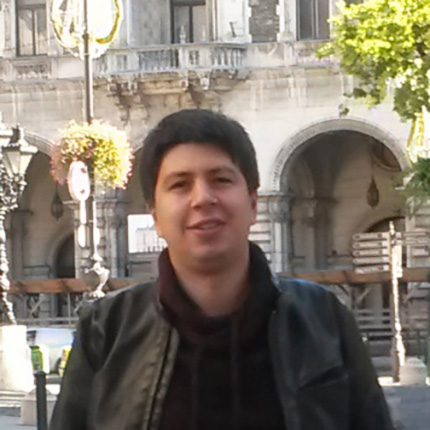
Ahmet BENLIALPER
My research interests include the following: Central Banking and Financial Markets, Monetary Policy, International Finance, Development Economics.
Personal website
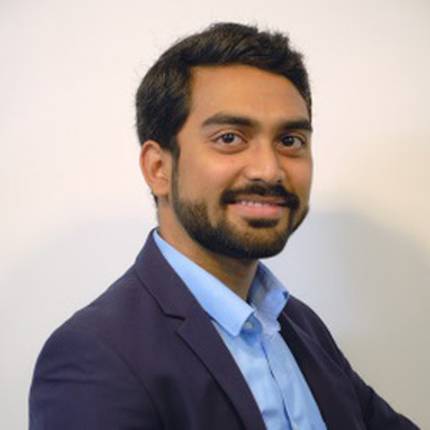
Sumon CHAUDHURI
My research is on two key themes - strategic interactions between humans and AI, and applying machine learning techniques to solve marketing problems. I am intrigued by research questions that have an impact on firms, as well as society at large, and I use tools like natural language processing, computer vision, and deep reinforcement learning to answer those questions.
LindedIn profile
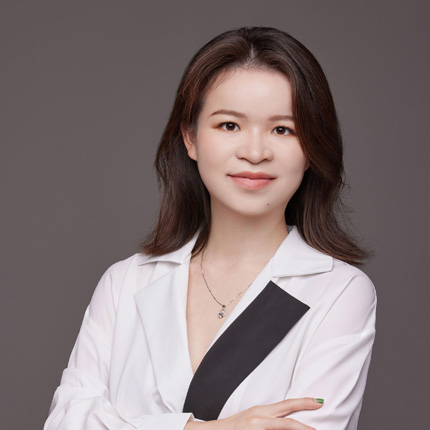
I study how firms perceive and adapt to changes in the formal institutional environment, particularly in the international context. My current research explores how firms respond to legal and geopolitical changes in the international institutional environment. Additionally, in my future work, I am interested in exploring how firms strategize about conflictual demands from regulators.
Contact me Personal website
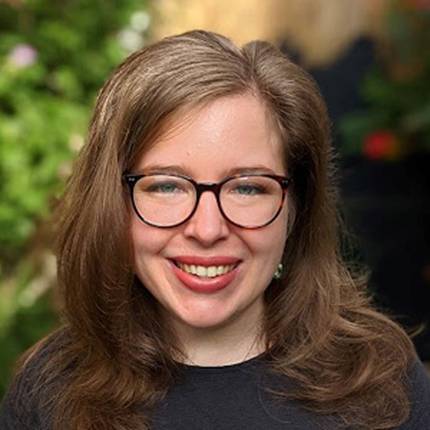
Mélanie MARTEN
Microeconometrics and policy evaluation, environmental economics.
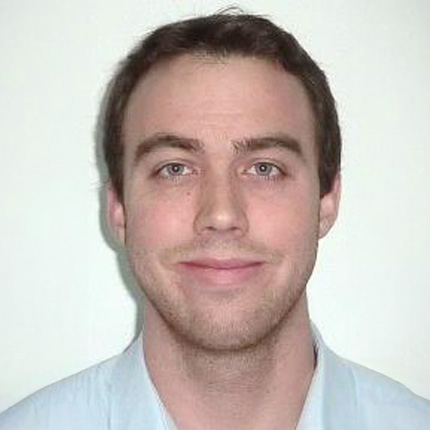
Thomas Michael ROWLEY
Interested in International Trade, Productivity and FDI.
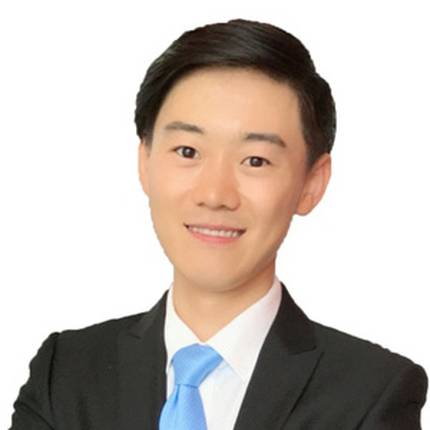
I am a Ph.D. Candidate in Finance. I will be on the academic job market in Fall 2023 / Spring 2024. My research focuses on hybrid finance and accounting topics including financial intermediaries, the applications of big data, and behavioral finance. My job market paper studies the impact of sleep deprivation on the working performance of sell-side financial analysts.
Download the CV Personal website

I am a Ph.D. candidate in accounting and will be on the 2023-2024 job market. My research focuses on financial accounting and capital markets, specifically corporate disclosure. Using archival data and natural language processing techniques, my current work examines how various forms of corporate disclosure, such as financial and ESG reports, are influenced by retail and institutional investors, and how corporate disclosure plays a role in investment decisions or information intermediaries' outputs. In the future, I will continue to explore innovative communication channels that companies use to engage with often-overlooked stakeholders such as retail investors, customers, and employees.

Jong Hyuk LEE
My research interest is centered on understanding ESG and fraud detection. I am particularly focused on employing statistical methods, including structural modeling and machine learning.

My current research interest lies in the combination of Machine Learning and Accounting Research. There are two aspects I would like to explore in the future: (1) using machine learning techniques to convert unstructured data into structured data and (2) detecting the consequences of the use of machine learning in capital market
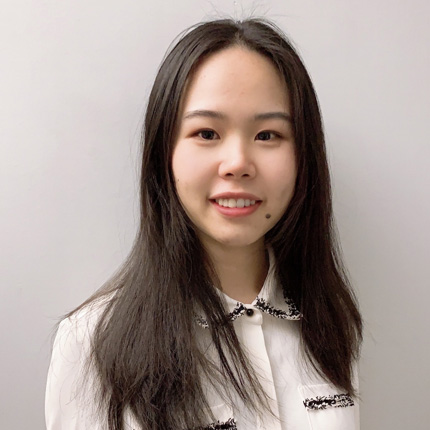
My research interest lies in financial reporting and disclosure.
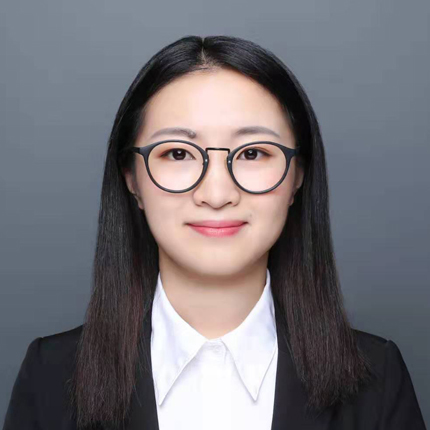
My research interest lies in financial accounting and corporate governance.

My research mainly focuses on Reinforcement Learning, Machine Learning, and Computational Statistics.

Vahe KARAGULYAN
My research interest is around high-dimensional statistics
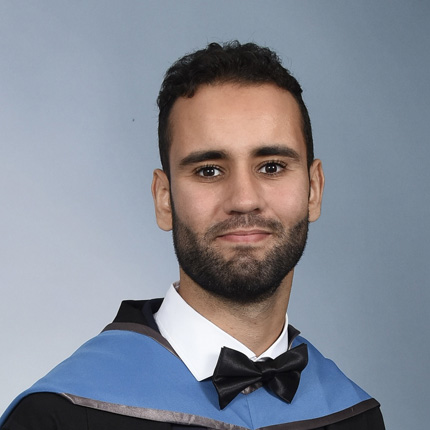
El Mahdi KHRIBCH
My research interests are Bayesian nonparametric methods with an emphasis on Monte Carlo Methods, unbiased estimation, and PAC Bayesian bounds.

Patrick TANG

- Public Economics
Omar AL HUMSI
I am interested in Public Economics, Labor Economics, and Macroeconomics.

Maxime BERROU
My research focuses on the interaction between public policy and globalization. My current project is empirical and aims at estimating the effects of trade liberalization and labor market regulations on the informal sector in India.
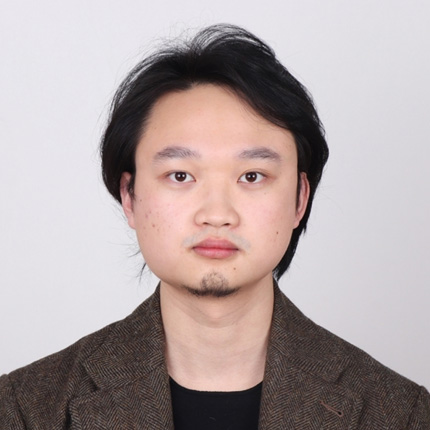
- International Economics
Zijun CHENG
My current research interest is in International Trade. More precisely, the spatial productivity difference between different countries. Another research area of interest is macroeconomics, especially in the business cycle and inflation index generation.

Mahaut DE VILLENEUVE BARGEMON
I am interested in theoretical Environmental Economics.
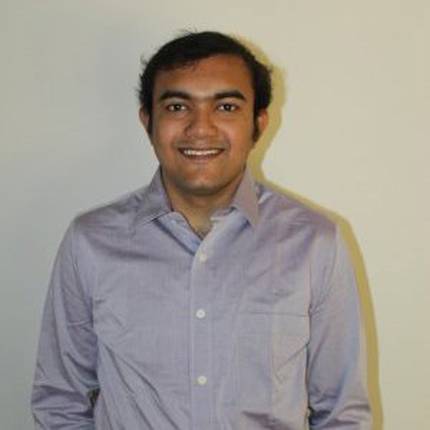
Rajarshi GHOSH
I am interested in microeconomic theory, especially game theory and the game theoretic reasons for the existence of today's social and economic institutions. I am also interested in market failures, market design, and the economics of incentives.
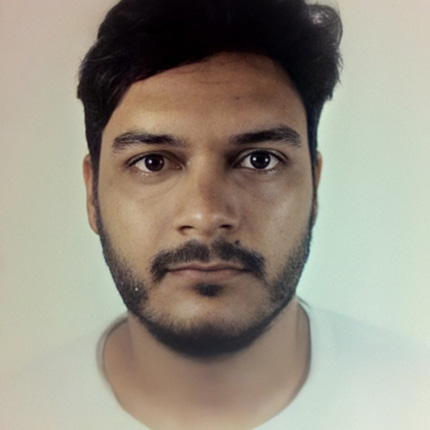
Raphael GOMES DE OLIVEIRA
My main research interests are social welfare and individual and collective decision-making.
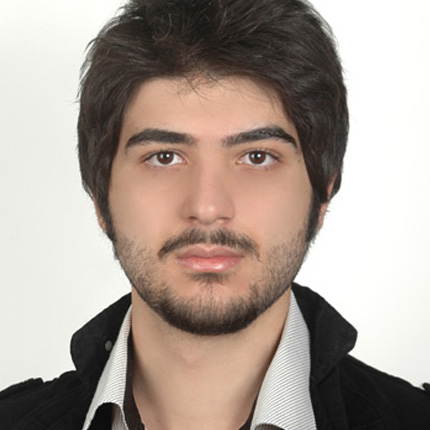
Mohammad LASHKARBOLOOKIE
I am interested in microeconomics theory, specially, game theory and its applications in information economics and Industrial organization.

Shuying LIU
My current research interest lies in the intersection of microeconomic theory, information economics and industrial organization within the realm of digital markets.

My research interests lie in international economics and macroeconomics, especially topics related to monetary policies.

My interest research is in spatial economics and labor market.
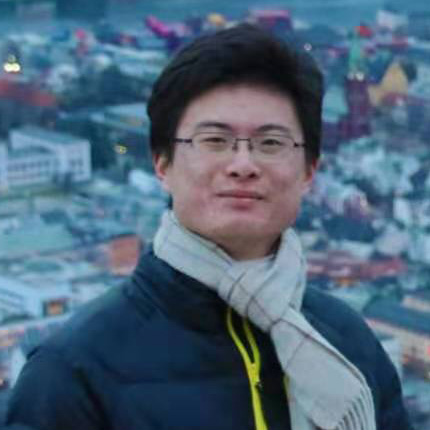
My research interest lies in two main fields: Macroeconomics, Monetary Policy and Financial economics; Also, Development economics and Environment economics.

Aïcha RAMZA
I investigate gender inequalities in the labor market. In particular, the role of gender discrimination in generating the employment polarization in developing economies.

Mira SERHAL
I am interested in family and gender economics, economics of education, and environmental economics.
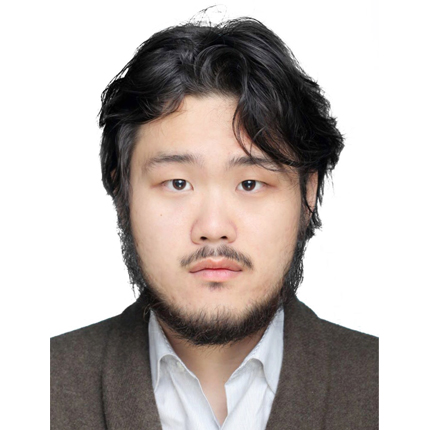
I am interested in gender economics, environmental economics and public economics.
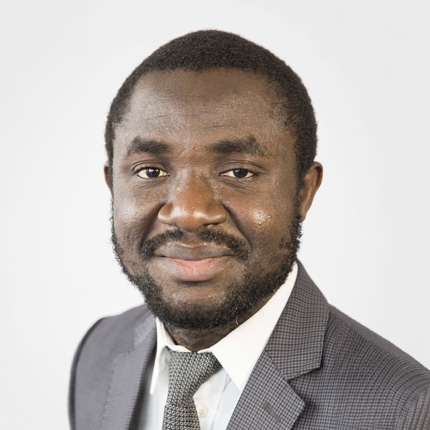
Jean TOUPOUVOGUI
Interested in issues of international macroeconomics such as debt crises due to uncertainty shocks and the challenges of international finance and trade in a multipolarized world that threatens both the hegemony of the dollar and the role of Bretton Woods institutions, such as the IMF, as lender of last resort for economies at risk of bankruptcy.

Xiaowei ZHANG
My research interests are Labor Economics, Environmental Economics and Development Economics.

Jiachen DONG
My research interest lies in corporate finance and sustainable finance. In particular, I am keen on connecting my past industry experience in asset management and investment banking to academic topics, such as ESG investment and entrepreneurial finance.
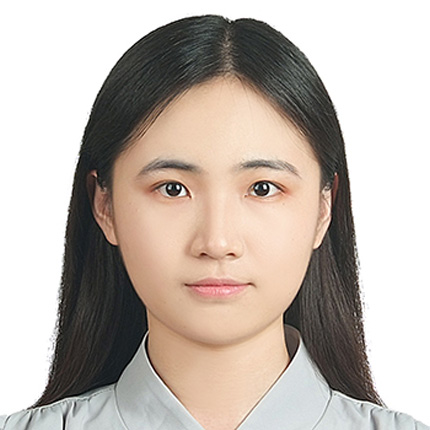
Huilin HUANG
My current research interests lie in the filed of asset pricing, behavioral finance and econometrics.
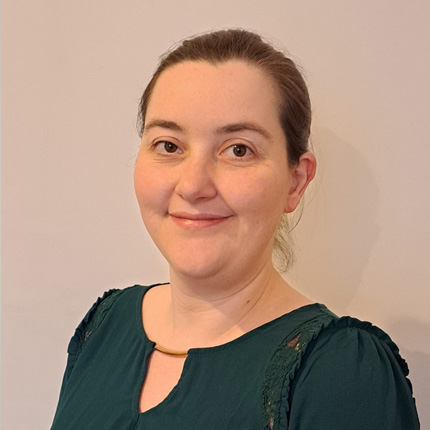
Hélène IUNG-MATHURIN
My research interests lie in the fields of theoretical macro-finance, asset pricing, machine learning and climate finance.
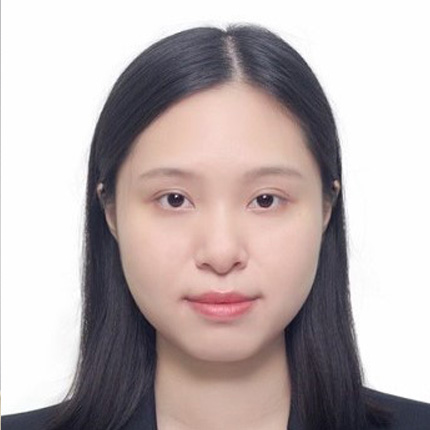
My research interest lies in the field of financial econometrics, banking finance and household finance. It may be changed several months later.
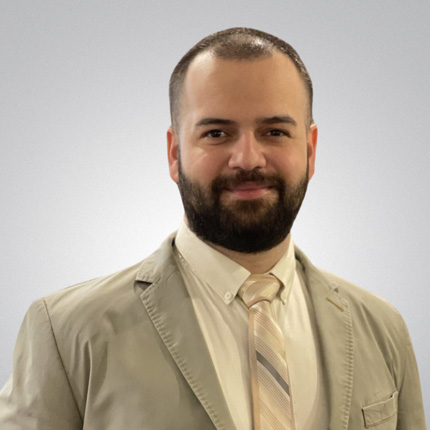
Soroush MAHDAVIANI
My research interests encompass household finance, behavioral finance, and corporate finance.
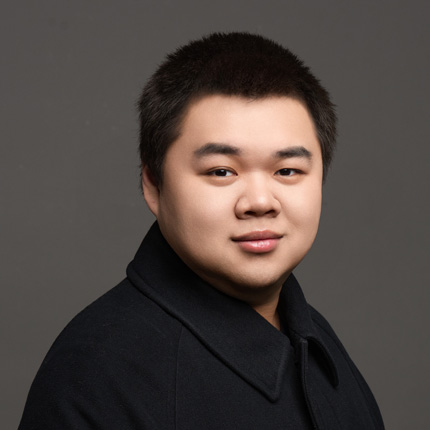
Wenliang MIN
My research interests lie in the field of empirical asset pricing, machine learning and green finance.
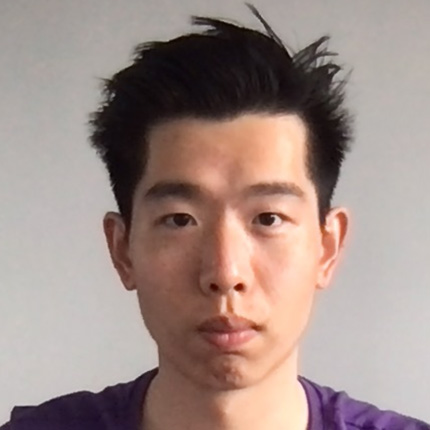
Menglong NA
I am working on the intersection between sustainable finance, asset pricing and behavioural finance. I am interested in studying the how investors' sentiment and preference affects ESG asset prices.
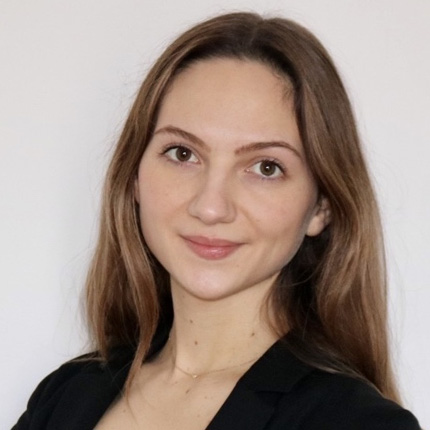
Rachel PAYA
Broadly speaking, my research interest lies in the fields of environmental and financial economics. In particular, I focus on the behaviour of firms regarding corporate investment decisions in the context of the ecological transition and the public policies able to influence those decisions.
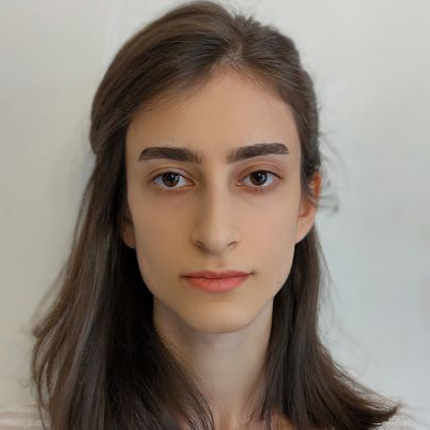
Roya SOLTANI
I am interested in the field of corporate finance, in such areas as financial constraints and financial contracting. I am also interested in asset pricing—areas like market anomalies, liquidity and trading cost, and macro-finance.
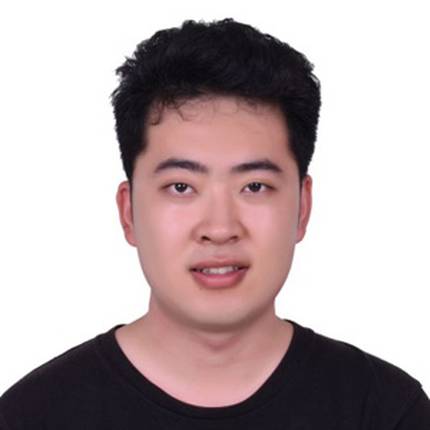
My research interest lies in empirical asset pricing. I'm currently working on investigating the momentum effect in the Chinese stock market and exploring the predictability of options in the US market.

Arushi AGGARWAL
I am interested in exploring decision-making within organizations as a function of the actors' social interactions (or networks). Furthermore, I am also keen to understand the dynamics of status, power as well as identity within these contexts.
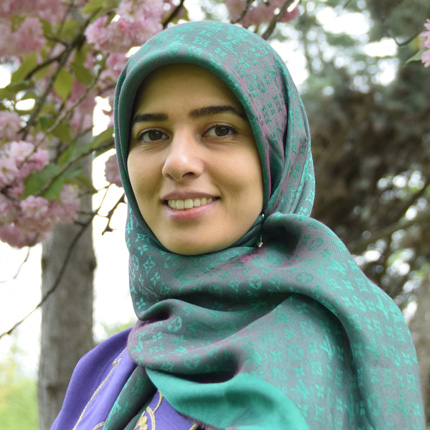
- Management, Information Systems
Saideh ALAEI
Exploring the fascinating intersection of technology and society, my main research project reveals the dual impact of national digital initiatives aimed at bridging the digital divide on the social sustainability outcomes of countries and firms. I aim for a harmonious balance between technological progress and social sustainability aspects such as individual well-being, equitable opportunities, and cohesive social networks. Alongside, my journey ventures into the realm of innovation, where I discuss the potential of machines to assist designers in creating products that attract consumers. For these projects, I employ econometrics and computational methods to illuminate technology's nuanced role in modern society.
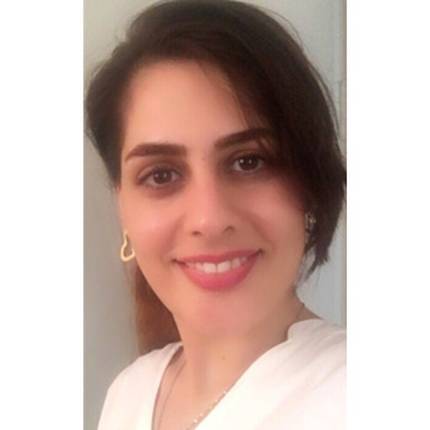
Yosra ALEAHMAD
I am a 5th-year Ph.D. Candidate in Management Control at ESSEC Business School in France. My research focuses on management controls and gender; aiming to uncover the ways in which management controls contribute to the persistence of gender inequality. Additionally, my work investigates what shapes accounting calculative techniques.

Abhay BHARGAVA
My research interests lie at the intersection of creativity & innovation, driven by AI and new technologies. This includes their design and implementation. I have authored a book “ Creativity Secrets: Creativity & innovation Secrets for Design, Art, and Business ” based on my several creativity and innovation experiences that include bringing new innovative technologies to market in the US as a consultant and a serial entrepreneur.

Federica BRAGAGNOLO
My research lies at the intersection of management and accounting. I am interested in studying the readiness of organisations to engage in changes within their accounting workflows and procedures. Further analysis will include the study of the social (i.e., organisational employees and executives) and technological (i.e., incremental innovations of cloud computing, Optical Character Recognition, Robotic Process Automation or more breakthrough innovations such as blockchain based Accounting Information System or smart contracts) components shaping the phenomenon.
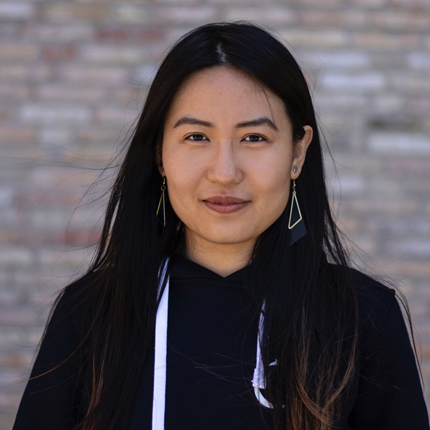
- Management, Strategy
Liying CHEN
My research interests lie in the CSR and green transitions related to technology, especially in the family businesses, and the interactions of sustainable strategies between Global North and Global South countries
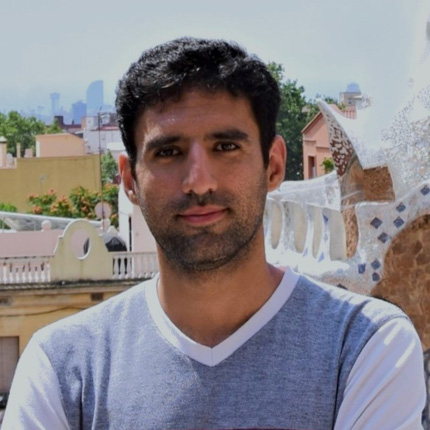
Driven by a fascination with science and mathematics, my journey in Mechanical Engineering began. During my Bachelor's, I excelled in national-level RoboCup competitions, which fueled my passion for innovation. This led me to engage in design and simulation projects during my Master's in Mechanical Engineering. Professionally, my path has spanned diverse industries, including automotive and mining equipment maintenance. In these sectors, I have contributed to various tasks ranging from product development engineering to creating platforms that enhance machinery uptime through user feedback. As I embark on a PhD in Information Systems, my focus is on harnessing AI for design and innovation.
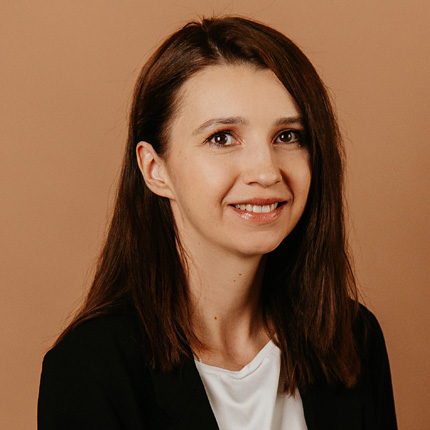
Anna KRAVCHENKO
My research interests focus on the impact of institutions on entrepreneurial processes and outcomes, as well as on family influences on entrepreneurship.

- Management, Organizational Behavior
His research focuses on how the interdependence between subunits of an organization shapes the ways in which solutions for localized problems are discovered and implemented. Taeho uses computational modeling as his primary research method, alongside other methodologies such as lab experiments.

George Boyang LI
My current research interest lies in applying psychological theories and behavioural economic theories in management accounting and control topics by using experimental (lab/field) methods. Key areas include performance measurement systems, forecasting, budgetary processes, and motivations behind employee misbehaviour (e.g. collusion).

Mengyue LIU
My research interest lies in user behaviors under digital transformation and innovation, especially how the digital era reshapes users' identification, decision-making, and interaction patterns.
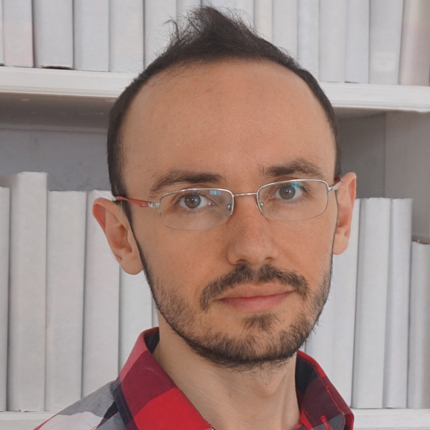
Evgeny NIVA
I am interested in a wide array of topics related to group dynamics, interaction rituals, microsociology of creativity, individual and team mindfulness.

Dong Nghi PHAM
Dong-Nghi Pham is a 5th-year Ph.D. Candidate in Management at ESSEC Business School in France. Her research focuses on the micro-foundations of organizational learning. In her Ph.D. dissertation, Dong Nghi investigates how intra-organizational learning shapes and is shaped by: (1) organizational politics, (2) organizational design, (3) the shift to remote work, and (4) the replacement of human capital. Because of the complex, emergent nature of these issues, Dong Nghi uses computational modeling as her primary research method, along with a particular enthusiasm for machine-learning approaches.

My interest in research is digital transformation influence and process in corporate level/ new technologies adoption in corporate and individual levels/the function and network effect of digital platforms.
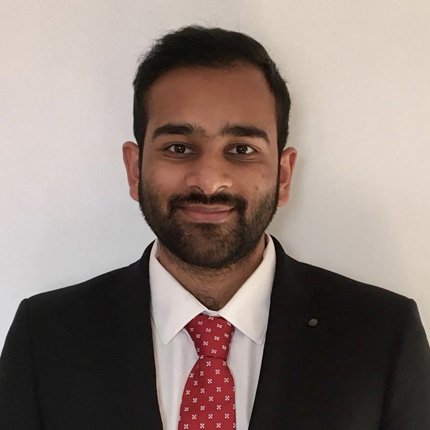
Shubham SINGH
My research interests are in the area of non-market strategy and stakeholder strategy. I am interested in understanding how firms react to changes in their political and regulatory environment.
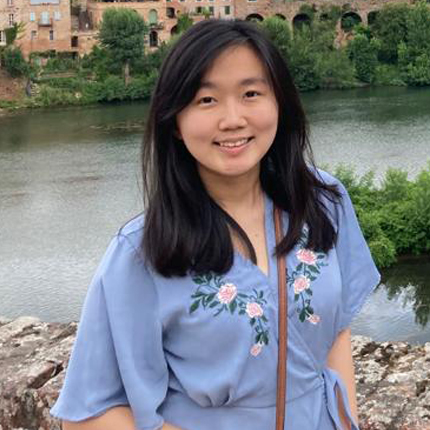
Marselia TAN
My main research interest are broadly on 1) nascent industry (the collaborative and/or competitive dynamics between entrepreneurial ventures and non-market stakeholders in shaping the new industry's legitimation) as well as on 2) (de)stigmatization process across levels of analysis (e.g. individual, occupational, organizational, industry category). I use qualitative research approaches to investigate underexplored organizational phenomena.

Matthias TRÖBINGER
My research explores how crowds engage in distributed problem-solving and innovation. I am interested in understanding (1) how resource seekers can coordinate with crowds to leverage their support and (2) what governance interventions enhance crowd decision-making processes. To explore these questions, I employ qualitative methods and experiments.
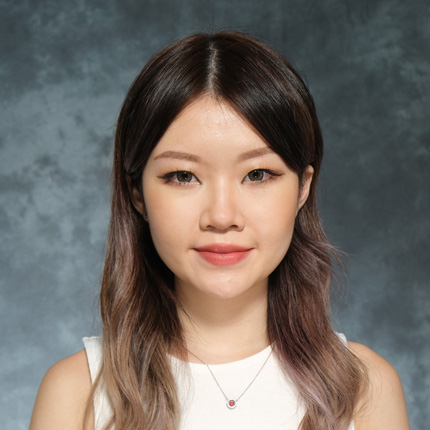
Helen Tsz Ching TSUI
My research investigates the emotion regulation of female leaders. I am interested in studying how beliefs about the emotions displayed by leaders and females shape the way female leaders regulate their own emotions, and how this consequently influences their well-being.

Aleksey TYULYUPO
My research interests revolve around online labor markets as a part of the platform economy. Having done some research with digital traces from online labor markets , I am now trying to overcome the self-imposed limitation of a single data source and platform. In doing so, I intend, first, to embed the view of online labor markets into the broader economy and, second, use them as the empirical ground to advance social theory. For instance, I am interested in questions like: • Can quality labor force at online markets be self-reproducible, or is it bound to only replete with retirees, outcasts and escapists from the office? • How do market matching processes change in the new informational environments, such as those of online labor markets?

Chuning XIAO
I am interested in a range of topics related to decentralization, organizational adaptation and organizational identity, especially in the context of creative industries.

Zipeng ZHENG
My research interest is currently anchored in the domain of corporate strategy, with a particular focus on how digital technologies reshape traditional business models and facilitate novel pathways for value creation. I am also interested in exploring the strategic complementarities between firms and their complementors to enhance innovation capabilities and market competitiveness.
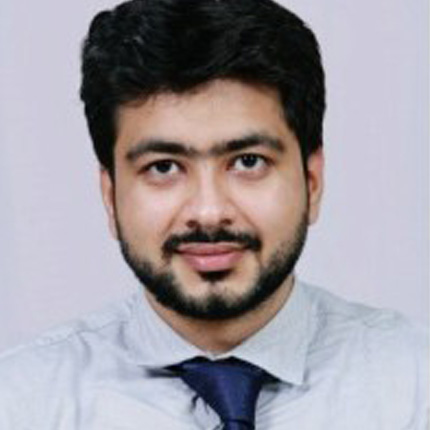
Madhav ARORA
My research interest lies in the domain of emotions and decision-making. I explore how different emotions affect consumer goals and their choices.

Haofan CHEN
My research interest revolves around consuming atmosphere and queer consumption. Currently interested in combining queer theory and CCT to explore how consumer culture shapes and is shaped by the fluidity of gender and sex from a non Western perspective.

Mohammadhesam HAJIGHASEMI
As a consumer behavior researcher, my focus revolves around investigating the relationship between humans and artificial intelligence, as well as emerging technologies like NFTs and blockchain. I am passionate about uncovering how these innovations transform consumer perceptions, influence decision-making behaviors, and ultimately generate value for both consumers and businesses.
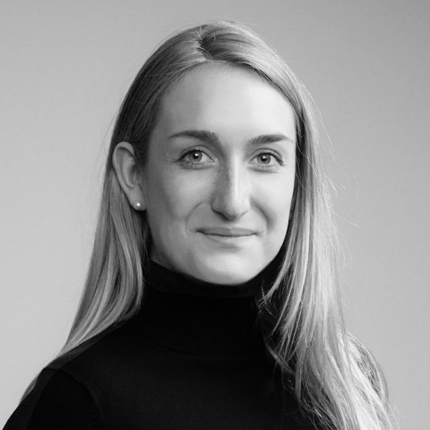
Lina OECHSNER
My research focuses on creating insights from user-generated content with the help of machine learning, natural language processing or image mining.
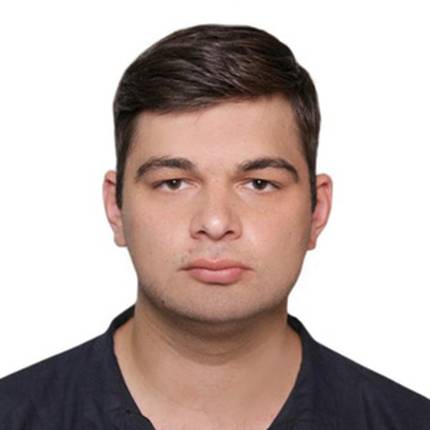
Roman PAVLYUCHENKO
My research interests include consumer psychology and consumer culture theory.

Anjana RAJMOHAN
I am interested in CCT-oriented research with a focus on sustainability and climate change.
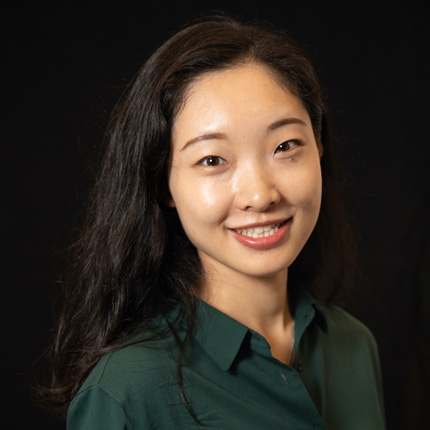
Danhan WANG
Bayesian statistics, sales forcasting using behavioral and transaction data to understand and predict future purchasing activities.

Pujith Niel WOOD
My research is centered on examining morality and deception within the context of consumer psychology, integrating insights from marketing, social psychology, and philosophy. I employ experiments to unravel the nuanced ways in which ethical considerations shape consumer behaviors. Additionally, I enjoy exploring decision-making and purchase behavior in immersive and virtual retail environments.
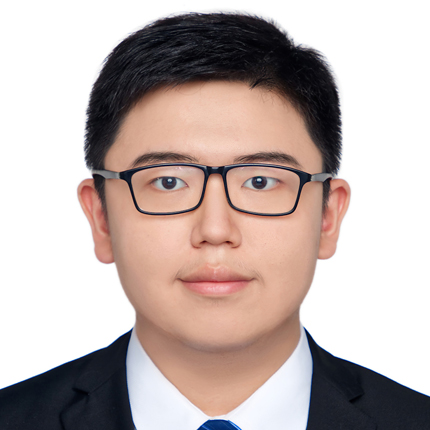
I have enjoyed marketing's interdisciplinary nature with an extensive reach. Methodologically, I am interested in quantitative modelling and machine learning. Substantively, I am currently interested in social media and online advertising.
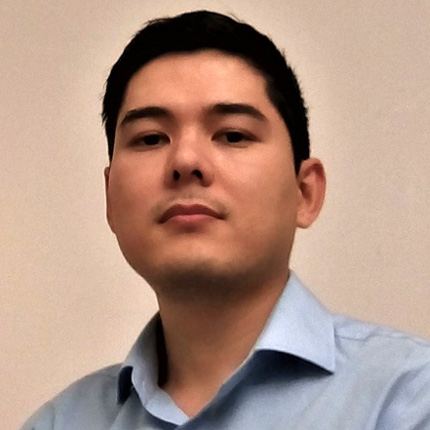
- Operations and Data Sciences
Yerlan KUZBAKOV
Application of operational research methods in various fields such as supply chain management, pricing, demand and supply management, and production management.

Yuanyuan LI
Research interests: • Large scale problem solving • The integration between OR and Machine Learning • Building bridge between theoretical study and practical usage
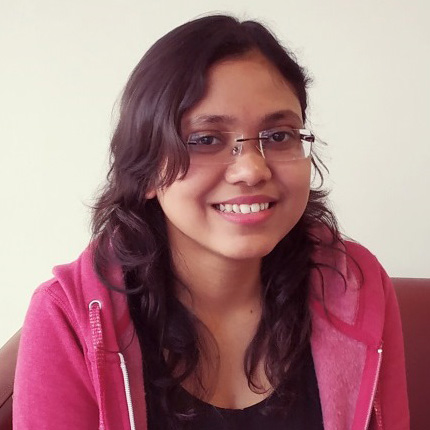
Minakshi Punam MANDAL
My main interests are in optimization methodologies, robust modeling, stochastic and dynamic programming and decision making under uncertainty that can be applied to operations research and risk management.
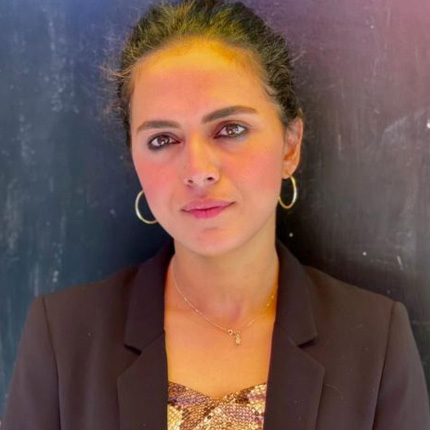
Sara MESRAR
I am a software engineer with nine years of corporate experience. During this time, I've played a pivotal role in assisting clients in leveraging technology and data to enhance operational excellence. Furthermore, my background in strategic consulting has provided me with a profound understanding of organizational dynamics, exposing me to global challenges, including issues such as Climate Change. These combined experiences have equipped me with the skills necessary to address intricate real-world problems situated at the crossroads of sustainability and operations. My research interest is driven by a desire to explore innovative approaches for integrating sustainability into the fabric of operational decision-making. My goal is to develop advanced models that empower businesses not only to thrive economically but also to make positive contributions to the environment and society at large.

Moein QAISARI HASAN ABADI
My research interests are Applied Optimization, Sustainability, Supply Chain Management, and Robustness & Resilience.
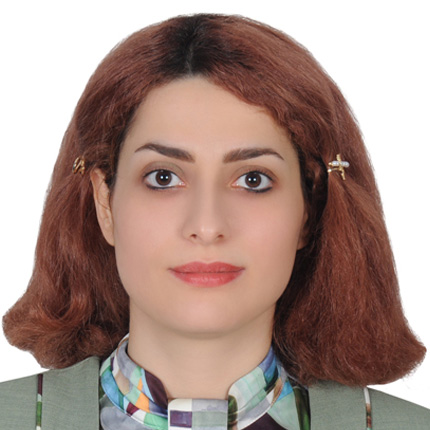
Shaghayegh RAMEZANPOUR SHALMANI
My research interests include the applications of operations research in production planning, pricing and decision making under uncertainty.

- Operations and Data Analytics
My research interests lie in polyhedral approaches for mixed integer programming and optimization under uncertainty, with applications in transportation, logistics and network design problems.
We provide full financial support for four years, and 5 th year support conditional on strong performance .
Tuition fees waiver during all your studies
Around € 23,000 living allowance per year for four years
Possibility of an associate lecturer contract for your fifth year
Conference budget provided your paper is accepted for presentation
Overseas internship package
External doctoral consortia and courses budget
Your Ph.D. Supervisor is selected officially only during the second year of your Ph.D., based on the research interests you will have developed by then. Although it is useful (and recommended) to scan the research interests of current faculty at ESSEC, it is not necessary to contact them before you have been accepted in the program. Admission decisions are collegial. If you believe your research interests may match well with those of current faculty, please mention it in your motivation letter.
The program is open to excellent students from a variety of backgrounds: business and economics, engineering, hard sciences, psychology, sociology, philosophy, humanities, etc. You can complete the application process online, at your own pace, via a secured and personalized access.
Fill in the online application form indicating university degrees and grades, including a statement of purpose and your Curriculum Vitae
Upload your official transcripts
Upload certified copies of all your grades and university diplomas unless award of the degree is specified on your final official transcript
Upload 3 letters of recommendation to be completed by faculty or research scholars (available in the Application online procedure). Please ask you referees to check their spam/junk folder if they do not receive the recommendation request from ESSEC
Provide a high GMAT or GRE score (test taken within the past five years). Last year's cohort had an average GMAT of 700. The ETS code center for the ESSEC PhD Program is X 6R-91-50 (GMAT) and 0839 (GRE)
The program being in English, applicants whose native language is not English are required to take the TOEFL, for which the PhD program code is 0045. IELTS is also accepted.
Tuition fees to the PhD Program amount to 10,000 euros per year for the first two years. For students from the European Union, reduced tuition fees of 5,000 euros per year apply.
After the first two years, tuition fees for students in residence amount for 2,400 euros for year. An exceptional waiver of half this amount applies for periods of non-residence.
ESSEC offers a generous package of tuitions waiver, scholarships and conferences funding . If not funded by other sources (governments, foundations, etc.), admitted students are eligible to apply to the ESSEC package. No student is admitted without external or ESSEC funding.

How to Correctly Use the Titles Dr. & PhD With a Name

How to Reference a Person With a PhD
When someone has earned a Doctor of Philosophy, or Ph.D., degree, that person is subsequently referred to as “doctor” in formal speech. The same is true of a person who is a medical doctor, psychologist, dentist or veterinarian. In formal speech, that person should be referred to as “doctor.” However, the rules are different in written form when addressing someone who is called “doctor” in formal speech. In written form, the titles “Dr.” and “Ph.D.” are not interchangeable.
Determine the Type of Doctor
First, you should identify what type of doctor you are addressing. Doctors of medicine and psychology, doctors of dentistry and doctors of veterinary medicine must be addressed differently in comparison to academic doctors who have earned a Doctor of Philosophy doctoral degree. Be advised that there are different types of doctoral degrees. A Doctor of Philosophy degree is just one kind of doctoral degree. There’s also, for example, a Doctor of Education doctoral degree and a Doctor of Psychology doctoral degree. The titles associated with the various doctoral degrees are not interchangeable. Only a person who has earned a Doctor of Philosophy degree should be addressed as Ph.D.
Addressing a Doctor in Writing
Place the title of “Dr.” before the name of a person who is a doctor of medicine or psychology, doctor of dentistry, or doctor of veterinary medicine. For example Dr. George Ross. Always write the word “doctor” in its abbreviated form when it goes before the person’s name. Never write, for example, Doctor George Ross. Do not combine the title of “Dr.” with any other title even if the person could appropriately be addressed by a different title. Never write, for example, “Dr. George Ross, Ph.D.,” even if the person is a medical doctor who has also earned a Doctor of Philosophy degree. Pick one title. Do not use the “Dr.” title when referring to someone who is solely an academic doctor.
Put a comma followed by the title “Ph.D.” after the name of a person who has earned a Doctor of Philosophy doctoral degree. For example Stacey Childs, Ph.D. Do not combine the title of “Ph.D.” with any other title even if the person could appropriately be addressed by a different title. For instance, even if the person being addressed is a doctor of medicine who has also earned a Ph.D., never write, for example, Dr. Stacey Childs, Ph.D. Pick one title. Do not use the “Ph.D.” title when referring to someone who not earned a Doctor of Philosophy doctoral degree.
Related Articles
How to sign your name when you have a bachelor of science in criminal ....

Proper Way to Notate College Degrees

How to Address a DVM

Different Types of Doctoral Degrees

How to Address Multiple Ladies in a Letter

The Difference Between a Doctoral Degree and a Ph.D.

The Difference Between a PhD & DLitt

Doctorate Degrees That Don't Require a Dissertation
- The Emily Post Institute: What are some professional titles to know?
Maya Austen began freelance writing in 2009. She has written for many online publications on a wide variety of topics ranging from physical fitness to amateur astronomy. She's also an author and e-book publisher. Austen has a Bachelor of Arts in communications from the New England Institute of Art and currently lives in Boston, Mass.
UGC makes it easier for some graduates to directly pursue PhD
Currently, a candidate for the national eligibility test (net) needs a master's degree with a score of at least 55%. it has now been eased..

"The candidates having passed a four-year or eight-semester bachelor's degree programme should have a minimum of 75% marks in aggregate or its equivalent grade on a point scale wherever the grading system is followed," the UGC chairman said.
Already have an account? Sign In
We've got news for you..
- Sello’s PhD from bogus college, Nzimande says
Skeem Saam actor Serunye also given ‘doc torate’
Minister of higher education Blade Nzimande says Trinity International Bible University which conferred an honorary doctorate to actor Sello Maake kaNcube is not registered and therefore has no authority to offer any qualifications.
On Saturday, Maake kaNcube posted a number of pictures quoting a Bible verse as he celebrated the honorary doctrate.
" Look at God! It’s now Dr Sello Maake kaNcube Someone please tell my co-pilot Pearl Mbewe Maake KaNcube @Solopearl [wife] that she is no longer travelling this life journey with a national treasure only but with an honourable DR!" Maake kaNcube wrote on social media platform X.
Some social media users questioned the honorary doctorate.
“When you pass through the waters, I will be with you; and through the rivers, they shall not overwhelm you; when you walk through fire you shall not be burned, and the flame shall not consume you.” Isaiah 43:2 Look at God! It’s now Dr Sello Maake kaNcube 🤩🥰😍 Someone please… pic.twitter.com/PqqyFtfAke — Sello Maake kaNcube -Archie Moroka ☺️ (@sellomkn) April 20, 2024
Another recipient is Skeem Saam actor Elizabeth Serunye. Singer Winnie Mashaba was conferred with one in November 2019.
View this post on Instagram A post shared by Elizabeth Serunye (@serunyeelizabeth)
Nzimande on Sunday said he had become aware of honorary doctorates awarded to some of the country's top celebrities by Trinity.
"According to our records as the department of higher education and training, Trinity International Bible University is not a registered private higher education institution. Trinity International Bible University is therefore not authorised to offer any qualifications, including honorary degrees.
"We also wish to state that, as the Department, we have written to Trinity International University before and warned them about continuing to operate illegally and for them to regularise their operations. We have also asked the Council on Higher Education (CHE) for guidance on how honorary qualifications should be offered and by who. As the Department, we have nothing against Trinity International Bible University or the celebrities they have chosen to honour," said the department's spokesperson Veli Mbele.
He said the department was "deeply disturbed by the persistent disregard for the department's regulations by the management of Trinity International Bible University".
"The department is considering more comprehensive and decisive action against Trinity International Bible University and all other individuals or institutions, who continue to undermine the department's regulations. As the department of higher education and training, we are willing to engage with Trinity International Bible University and the celebrities they have honored, to better explain our position.
"Most importantly, as the department of higher education and training, we have a legal responsibility to protect the integrity of our qualifications and that of our post school education and training system," Mbele said.
- Umalusi warns about bogus online schools and websites selling fake certificates
READER LETTER | Things can’t get worse than this at our schools and institutions of higher learning
- Beware of fake schools and colleges
Would you like to comment on this article? Register (it's quick and free) or sign in now.
Please read our Comment Policy before commenting.
- Mashata danced to Michael Jackson's hit before bullets
- DJ, comedian Mashata dies in shooting
- ANC haircut drive takes the crown on ways to woo voters
- WATCH: Wheel damage during take-off forces FlySafair plane to make ...
Related articles
- Mashaba calls on government to shut down bogus schools
- 'Bogus school' raises ire of neighbours
- KZN health department opens probe into case of 'fake' medical intern
Latest Videos

COMMENTS
Ask your professors and other scholars in the field for advice. All in all, the terms "Doctorate'' and "Ph.D." are in essence the same, which means all Ph.D. students are Doctoral students as well. On the other hand, earning a Ph.D. degree is no joke. If anything, Ph.D. students have the tenacity, patience, persistence, and years of ...
The primary difference in coursework between Ph.D. and doctorate programs primarily involves the type of assignments the students complete. Ph.D. students mainly concentrate on a curriculum that emphasizes philosophical ideas, theories and research. The coursework of a doctorate focuses on practical applications, problem-solving and innovation.
A doctoral degree is a graduate-level credential typically granted after multiple years of graduate school, with the time-to-degree varying depending on the type of doctoral program, experts say ...
The main difference between a doctorate and a PhD is their area of focus. A doctorate prioritizes applied knowledge and professional skills, while a PhD emphasizes academic research. Let's compare some more differences between a professional doctoral degree vs. PhD.
Doctorate, or doctoral, is an umbrella term for many degrees — PhD among them — at the height of the academic ladder. Doctorate degrees fall under two categories, and here is where the confusion often lies. The first category, Research (also referred to as Academic) includes, among others: Doctor of Philosophy (PhD)**.
Academic doctorate. An academic doctorate, often called a PhD (short for Doctor of Philosophy), is a research degree that typically requires completing a dissertation. Students enrolled in a PhD program may be interested in working in academia as a professor or conducting research in their field. However, a growing number of PhD students go on ...
A Doctor of Philosophy (PhD, Ph.D., or DPhil; Latin: philosophiae doctor or doctor philosophiae) is the most common degree at the highest academic level, awarded following a course of study and research. The degree is abbreviated PhD and sometimes, especially in the U.S., as Ph.D. It is derived from the Latin Philosophiae Doctor, pronounced as three separate letters (/ p iː eɪ tʃ ˈ d iː ...
One of the key differences between a Ph.D. and a professional doctorate is the focus of the doctoral study. Ph.D. programs typically focus on producing independent scholars who can conduct original research and advance knowledge in their chosen field. In contrast, professional doctorate programs emphasize the practical application of research ...
The Ph.D. is the most common research doctorate. Although the title stands for "doctor of philosophy," students can earn Ph.D.s in a wide range of subjects, including science and technology. In contrast, applied research doctorates often relate to specific fields, such as education, music, or social work. The main difference between the two is ...
A Doctor of Philosophy, often known as a PhD, is a terminal degree—or the highest possible academic degree you can earn in a subject. While PhD programs (or doctorate programs) are often structured to take between four and five years, some graduate students may take longer as they balance the responsibilities of coursework, original research, and other degree requirements with raising ...
PhD stands for Doctor of Philosophy. This is one of the highest level academic degrees that can be awarded. PhD is an abbreviation of the Latin term (Ph)ilosophiae (D)octor. Traditionally the term 'philosophy' does not refer to the subject but its original Greek meaning which roughly translates to 'lover of wisdom'.
According to the Education Data Initiative, the average cost of a doctorate degree is around $114,300 and the average cost of a PhD is $98,800. While this is quite expensive, having an advanced degree like a doctorate or PhD leads to higher salaries. According to Statista, those with a professional doctorate degree or PhD earn an average salary ...
A doctor of philosophy, or Ph.D., is a specific type of doctorate focused primarily on academic research. Ph.D. students are expected to conduct original research and add to their field's discourse. Most Ph.D. programs also require you to write and defend a dissertation. All Ph.D.s are doctorates, but not all doctorates are Ph.D.s.
Doctor of Philosophy, or PhD degrees, are research-based academic degrees which are awarded in many fields. A PhD degree is granted to students who have conducted publishable, original research in a peer-reviewed academic publication. Additionally, to get to that research, doctoral candidates have to complete a substantial amount of coursework ...
Professional doctorates and PhDs differ in focus, duration, and potential career earnings. Both are doctoral degrees, but a PhD is specifically academic and focused on original research. Professional doctorates (like an Ed.D, M.D., DBA) are applied and tailored to specific professions. In most cases, you'll need to complete a bachelor's and ...
The other type of doctoral degree is a PhD. Both doctorate and PhD degrees represent the pinnacle of the academic experience — a culmination of one's academic lifejourney. A doctorate degree can either be a research degree or an applied degree. A doctorate typically requires several years of advanced coursework, independent research, and ...
A PhD, or Doctor of Philosophy, is a specific type of doctorate degree that focuses on research in a particular field. It is highly theoretical and involves extensive research to generate new knowledge. On the other hand, a doctorate degree is an umbrella term for any doctoral-level degree. It can be further categorised into two types: academic ...
A PhD is a Doctor of Philosophy. In answer to the question, "Is a PhD a doctor," the answer is yes. Both a PhD and a professional doctorate like an EdD earn you the title of "doctor.". But there are differences between the types of doctoral degrees. Learn more about a PhD vs. a professional doctorate below.
A PhD is a terminal academic degree students typically pursue when they're interested in an academic or research career. A PhD is the highest possible academic degree a student can obtain. PhD stands for "Doctor of Philosophy," which refers to the immense knowledge a student gains when earning the degree. While you can actually get a PhD in ...
The median BLS salary for psychologists include both graduate and undergraduate level occupations. According to Payscale, of the 25 people reporting in September 2023, the average salary for graduates with a Ph.D. in psychology is $95,000. September Payscale data for 2023 reports the average salary for graduates with a Psy.D. as $92,000.
The Harvard Ph.D. in Education trains cutting-edge researchers who work across disciplines to generate knowledge and translate discoveries into transformative policy and practice. Offered jointly by the Harvard Graduate School of Education and the Harvard Kenneth C. Griffin Graduate School of Arts and Sciences, the Ph.D. in Education provides ...
An Integrated Masters with a PhD (iPhD) is a four-year postgraduate level programme that combines a one-year Masters course with a three-year PhD course. They allow students to familiarise themselves with their chosen topic, research methods and academic writing techniques before embarking on their own independent research project.
The ESSEC PhD program in Marketing is devoted to training doctoral candidates to conduct rigorous and high impact research in a dynamic business environment. The program accommodates candidates with both quantitative and qualitative orientations, and provides them with the requisite tools, concepts and theories to engage in top quality research ...
Put a comma followed by the title "Ph.D." after the name of a person who has earned a Doctor of Philosophy doctoral degree. For example Stacey Childs, Ph.D. Do not combine the title of "Ph.D." with any other title even if the person could appropriately be addressed by a different title. For instance, even if the person being addressed ...
A Ph.D. in management is one of the most advanced degrees you can attain in the business field. If you aspire to a high-level role in research, academia or consulting, you might consider pursuing ...
School of Education Dean Alicia Aguon noted that the new doctorate responds to the needs of educators and school systems across the region. "Our survey had nearly a thousand respondents ...
Students with four-year undergraduate degrees can now directly appear for NET and pursue PhD, according to University Grants Commission (UGC) Chairman Jagadesh Kumar. To pursue a PhD with or without a Junior Research Fellowship (JRF), the candidates will require a minimum of 75% marks or equivalent grades in their four-year undergraduate course.
Nzimande on Sunday said he had become aware of honorary doctorates awarded to some of the country's top celebrities by Trinity. "According to our records as the department of higher education and ...
phd.leeds.ac.uk
Mumbai-based Tata Institute of Social Sciences (TISS) has suspended a PhD students for two years for allegedly performing activities that were "not in the interest of the nation". Ramadas Prinisivanandan (30), who is pursuing his doctorate in Development Studies, has been banned from entering TISS campuses in Mumbai, Tuljapur, Hyderabad and Guwahati.